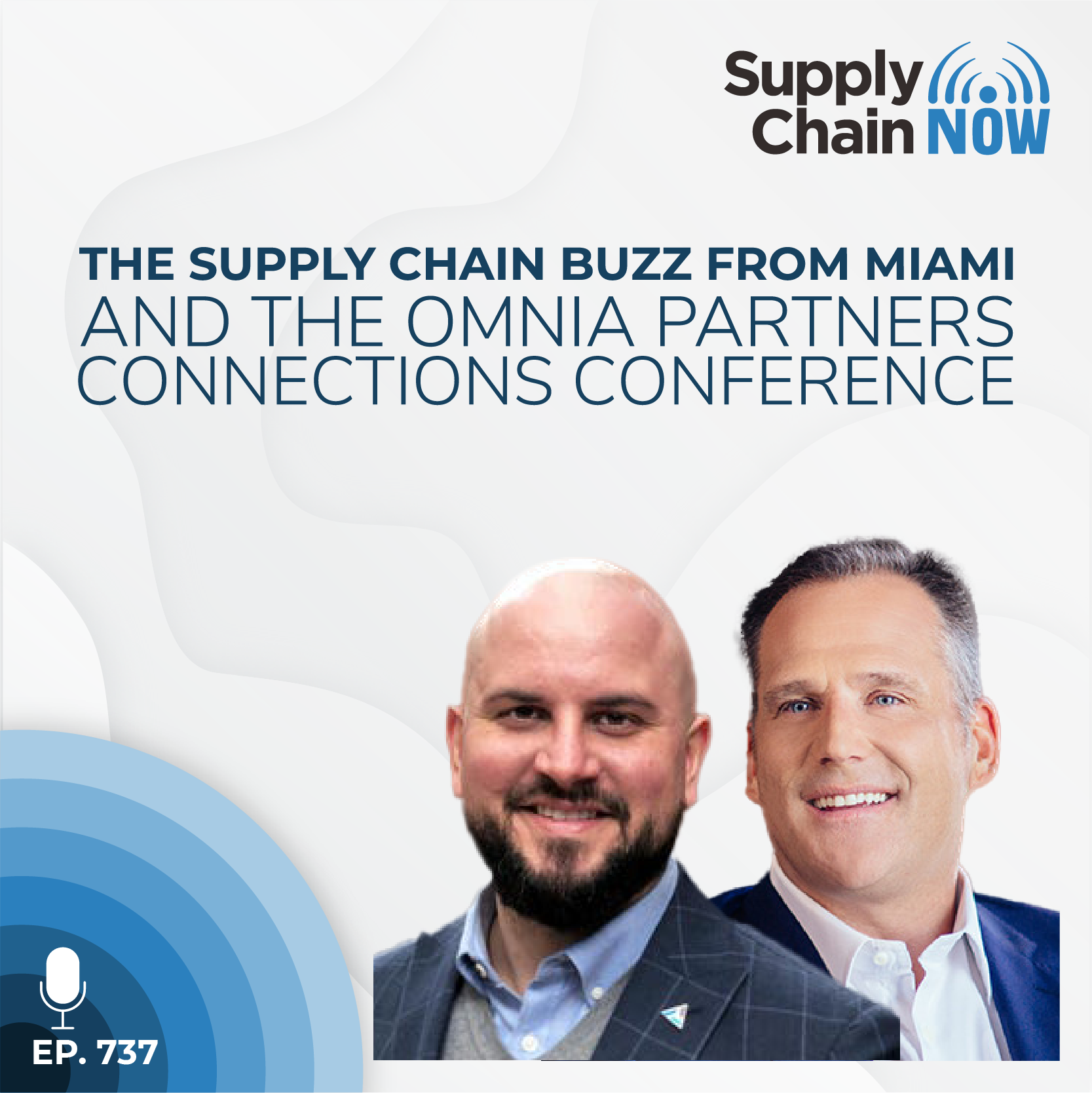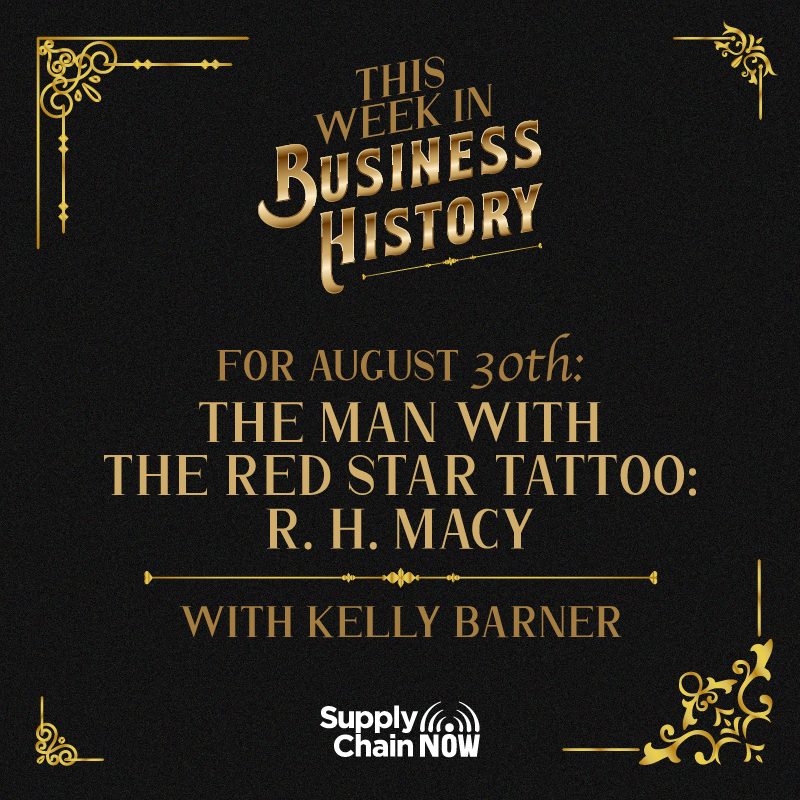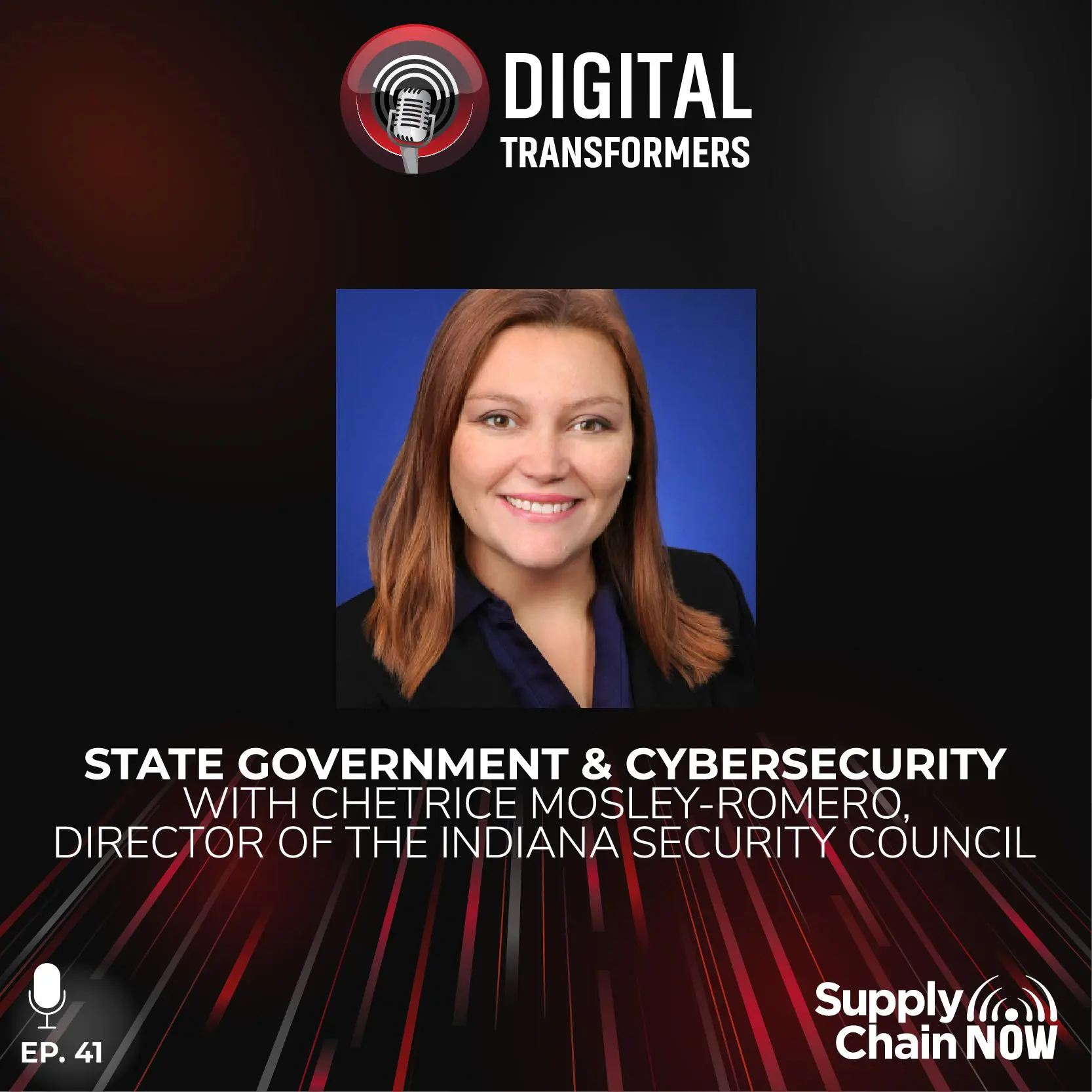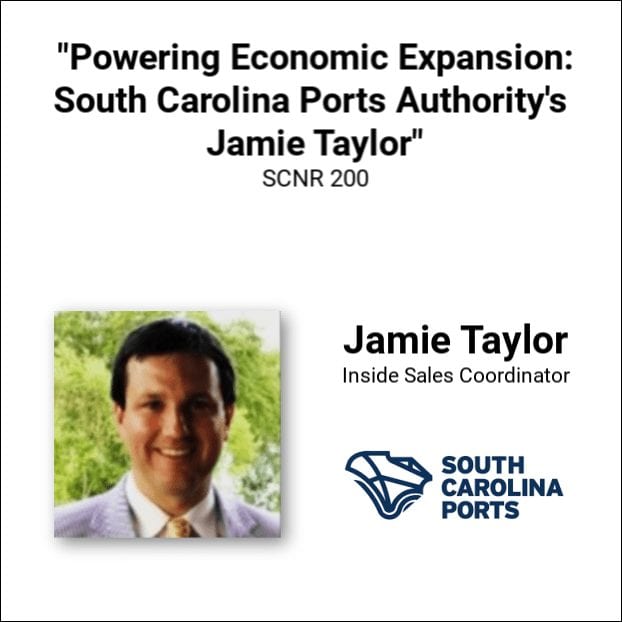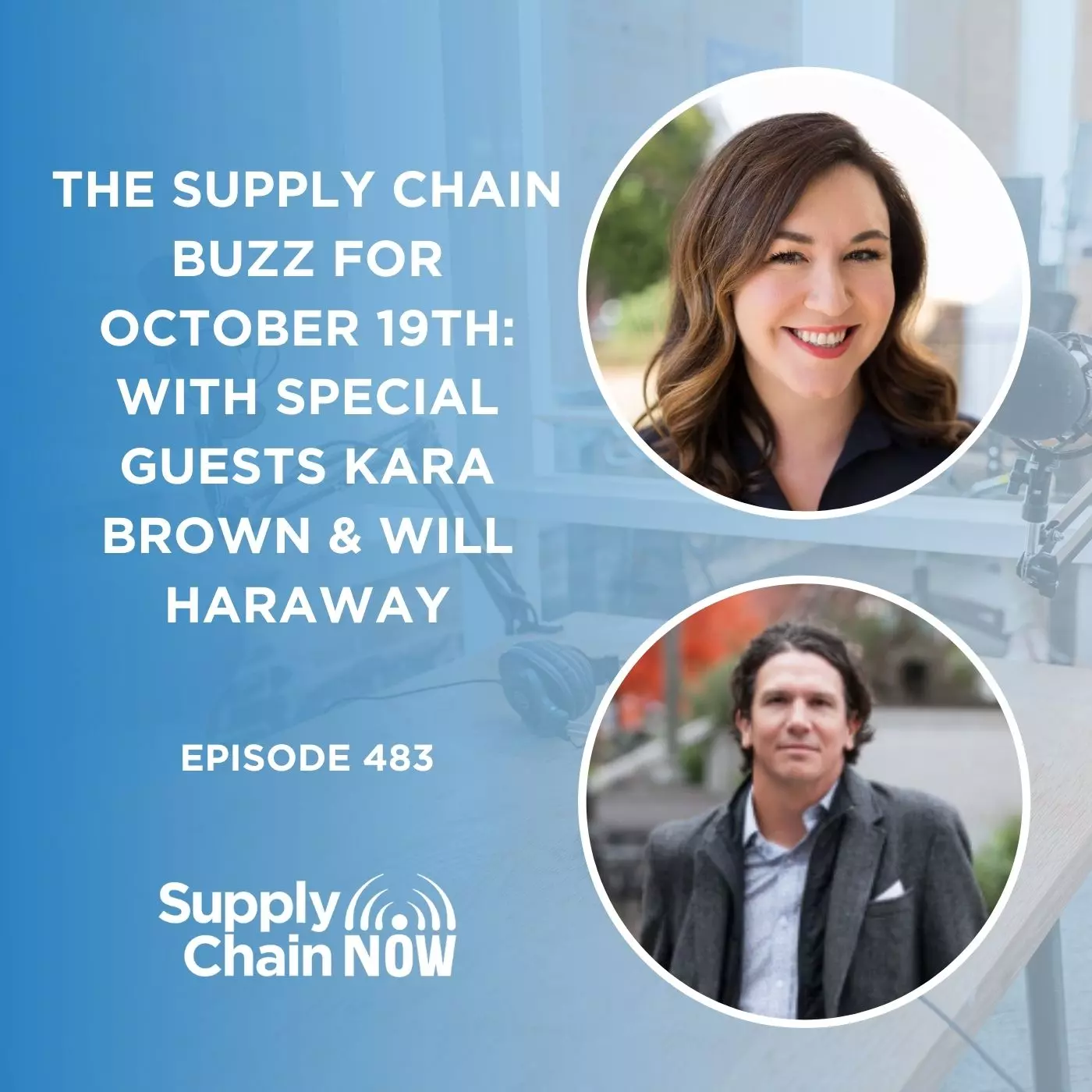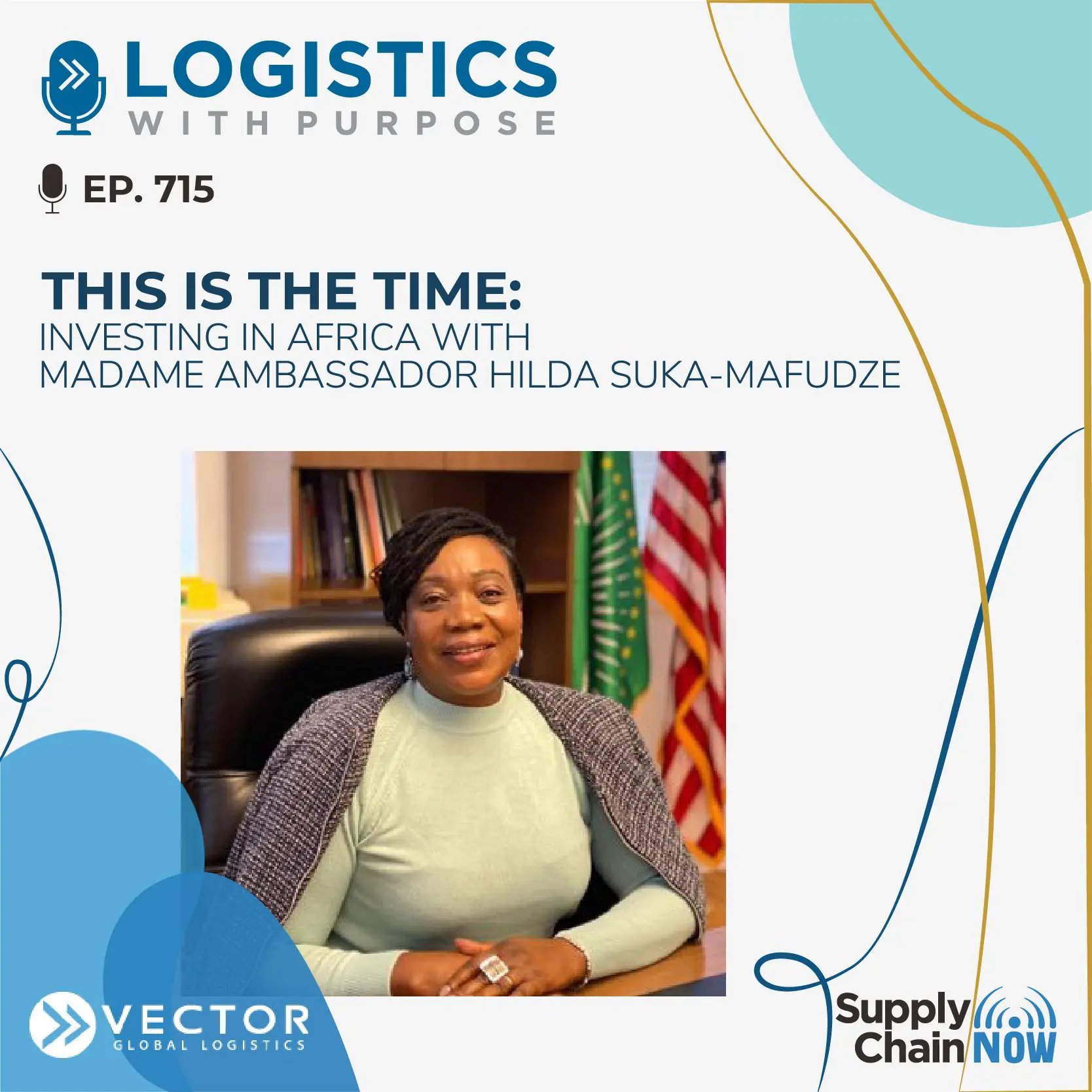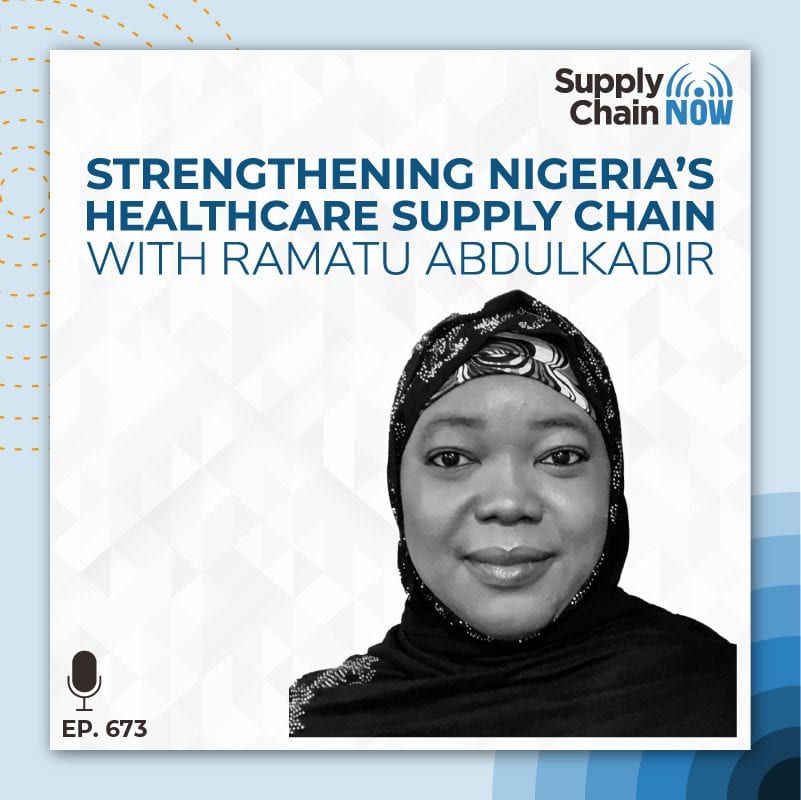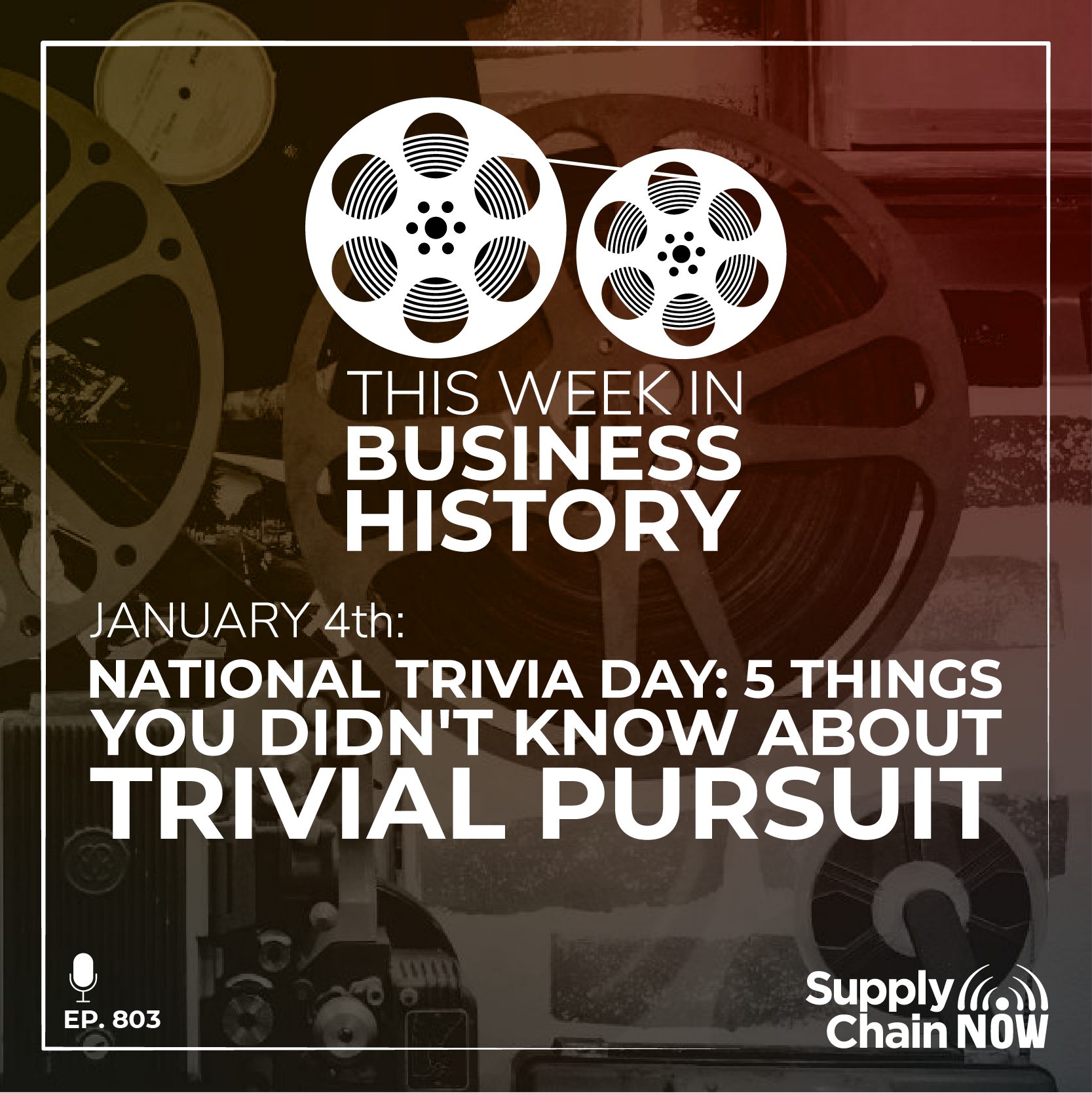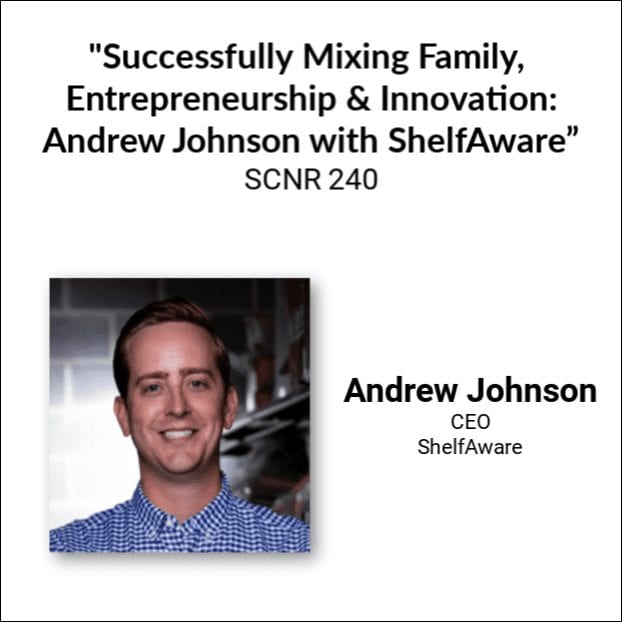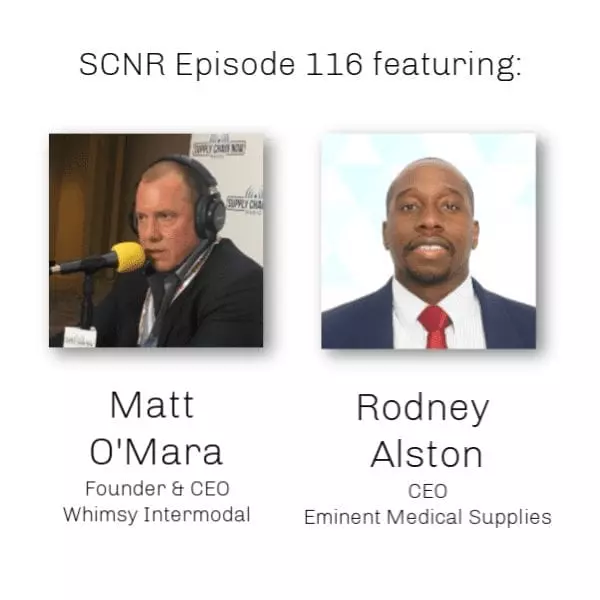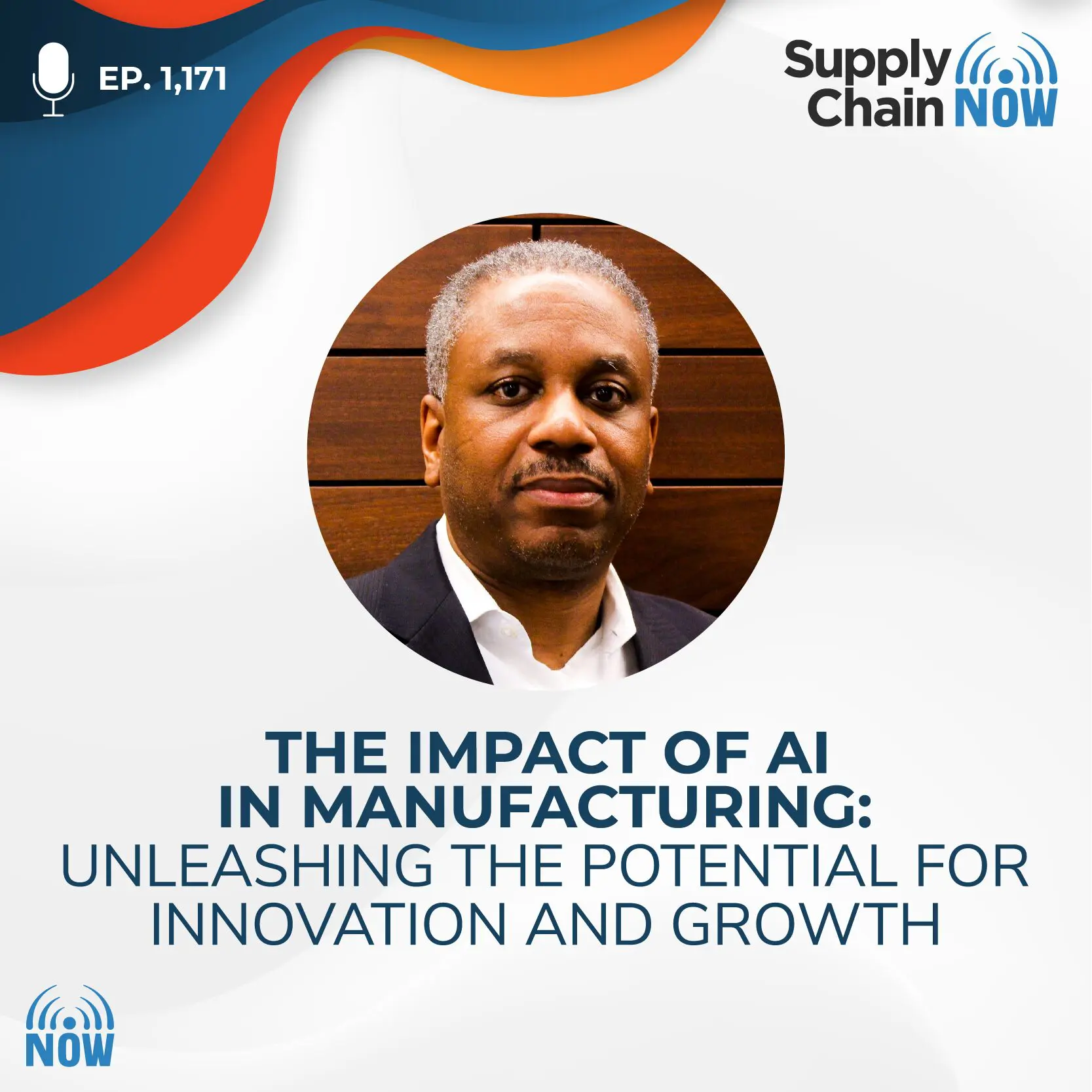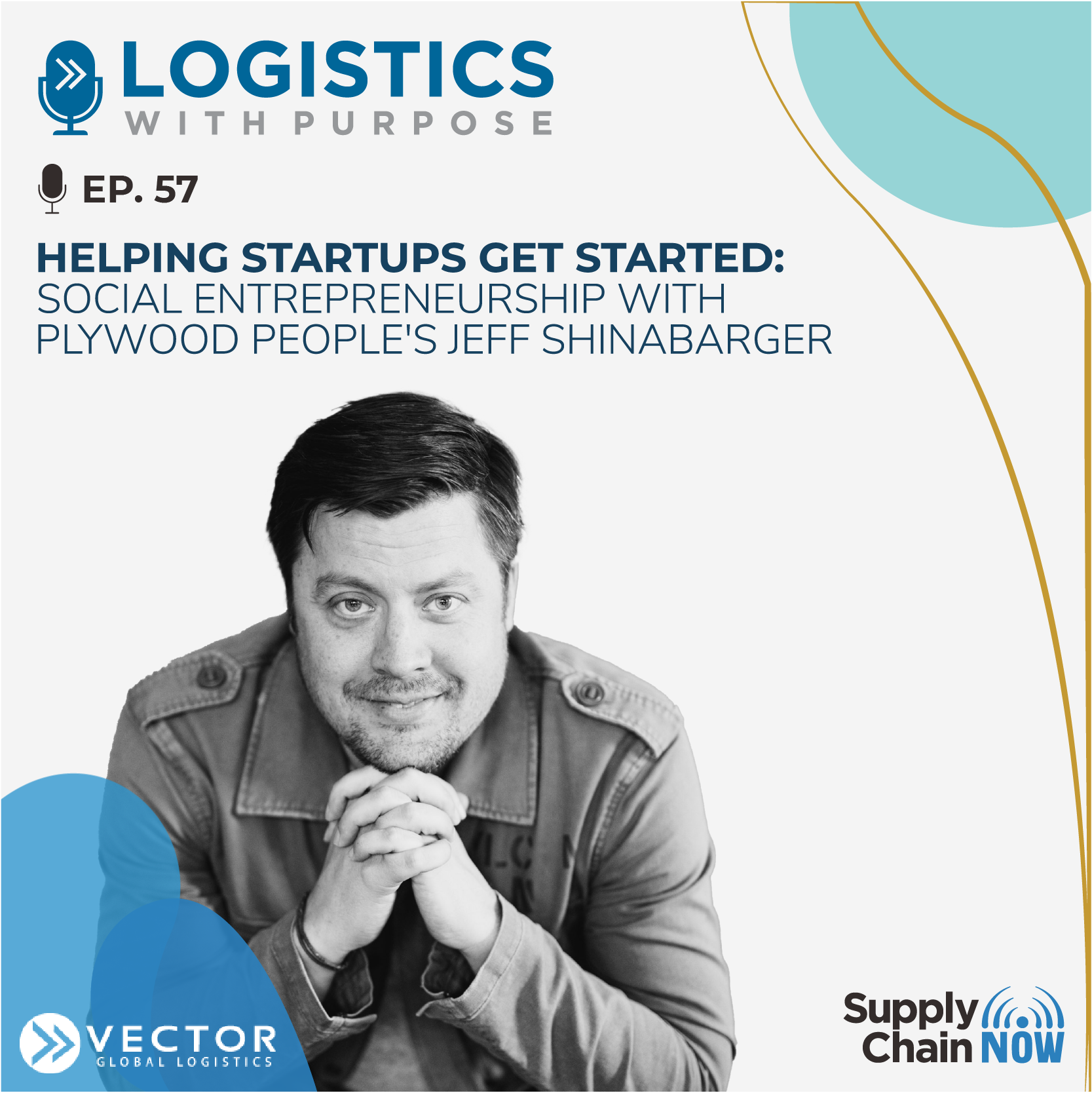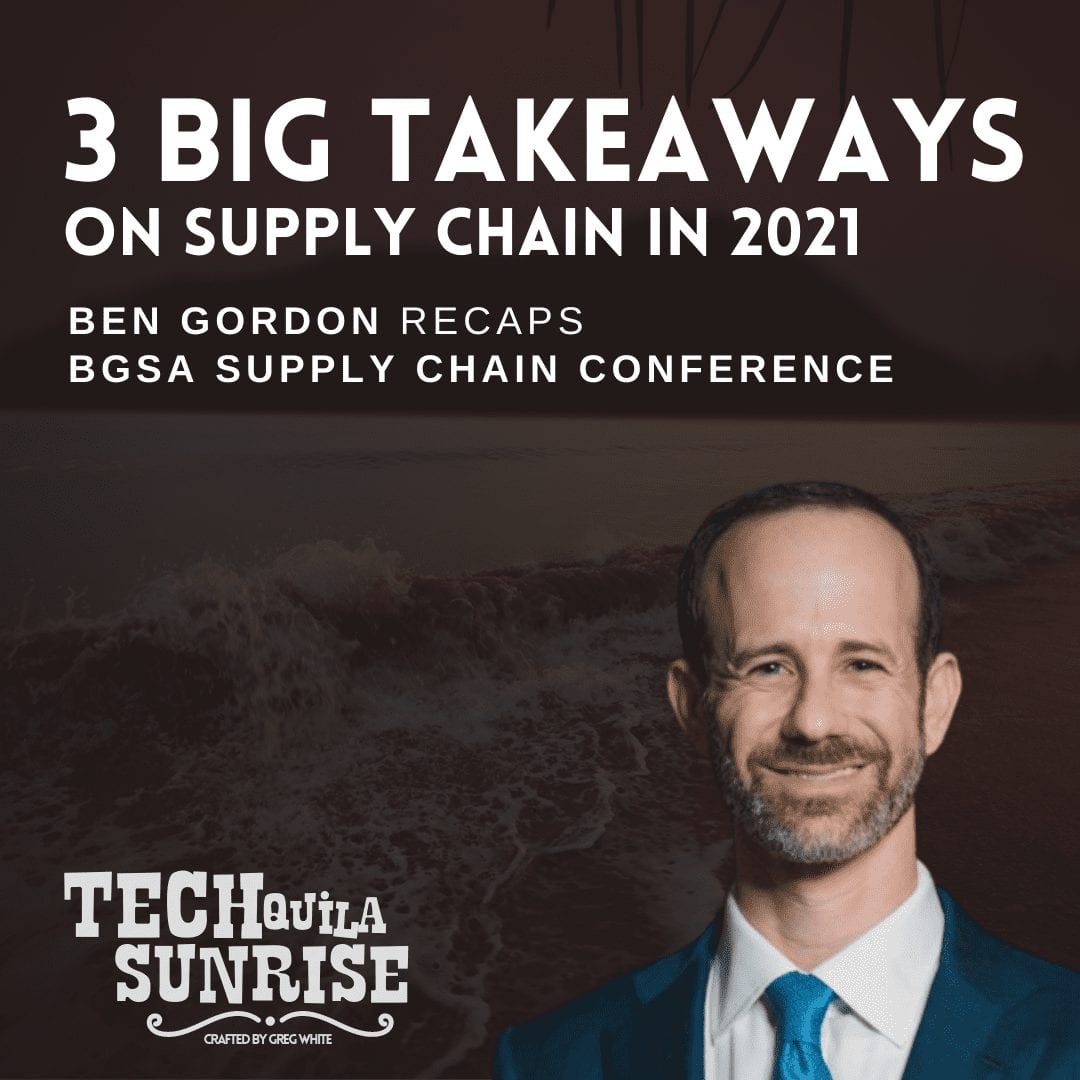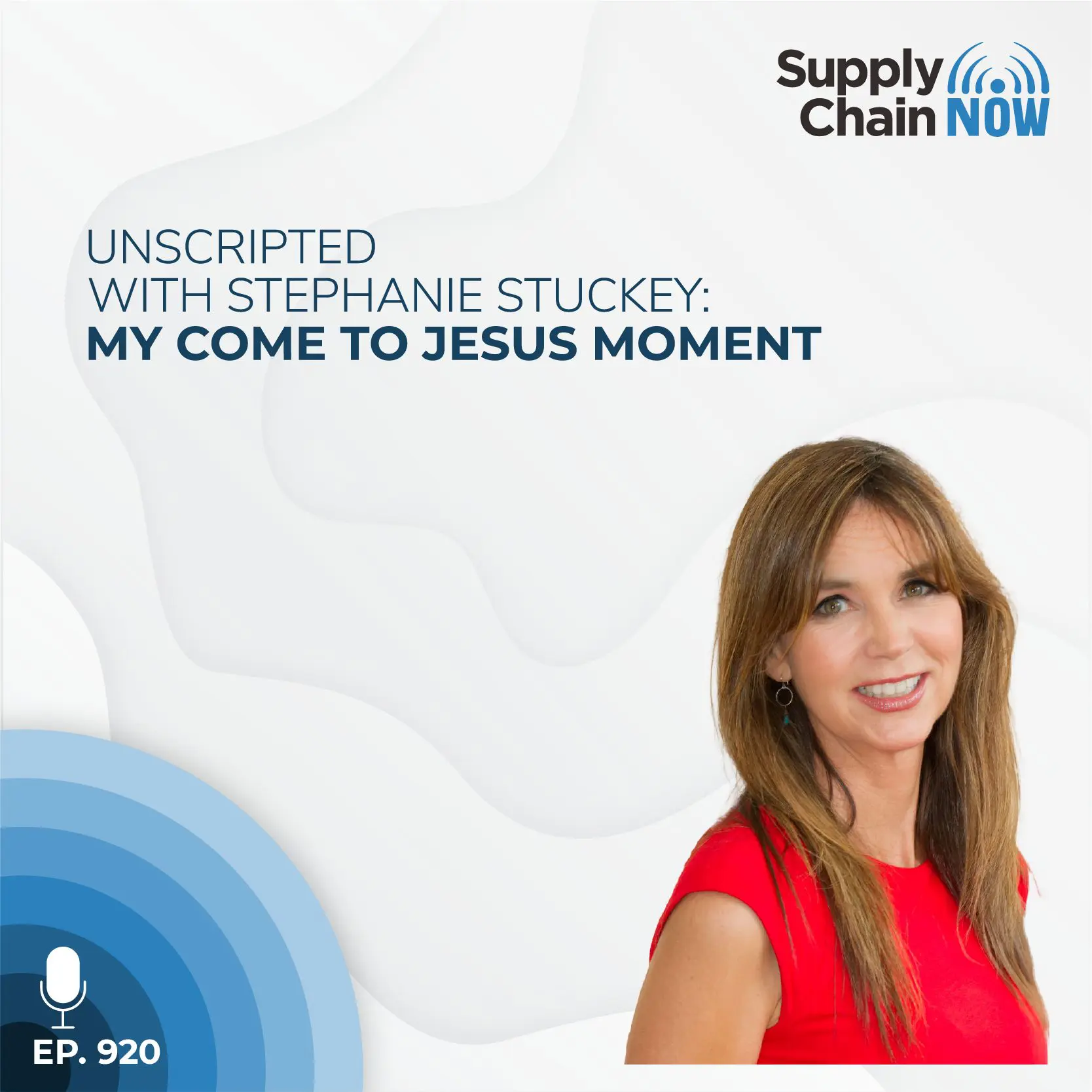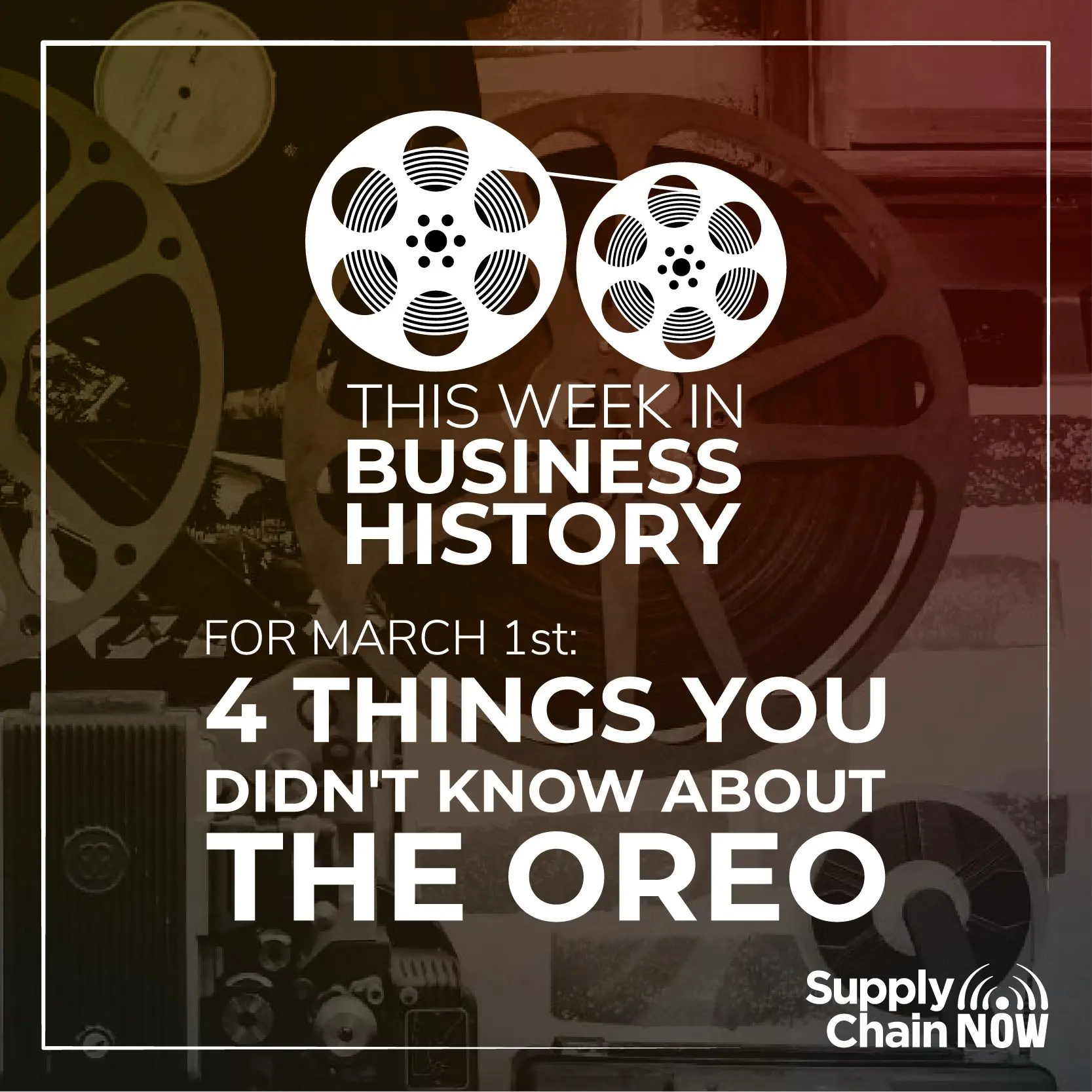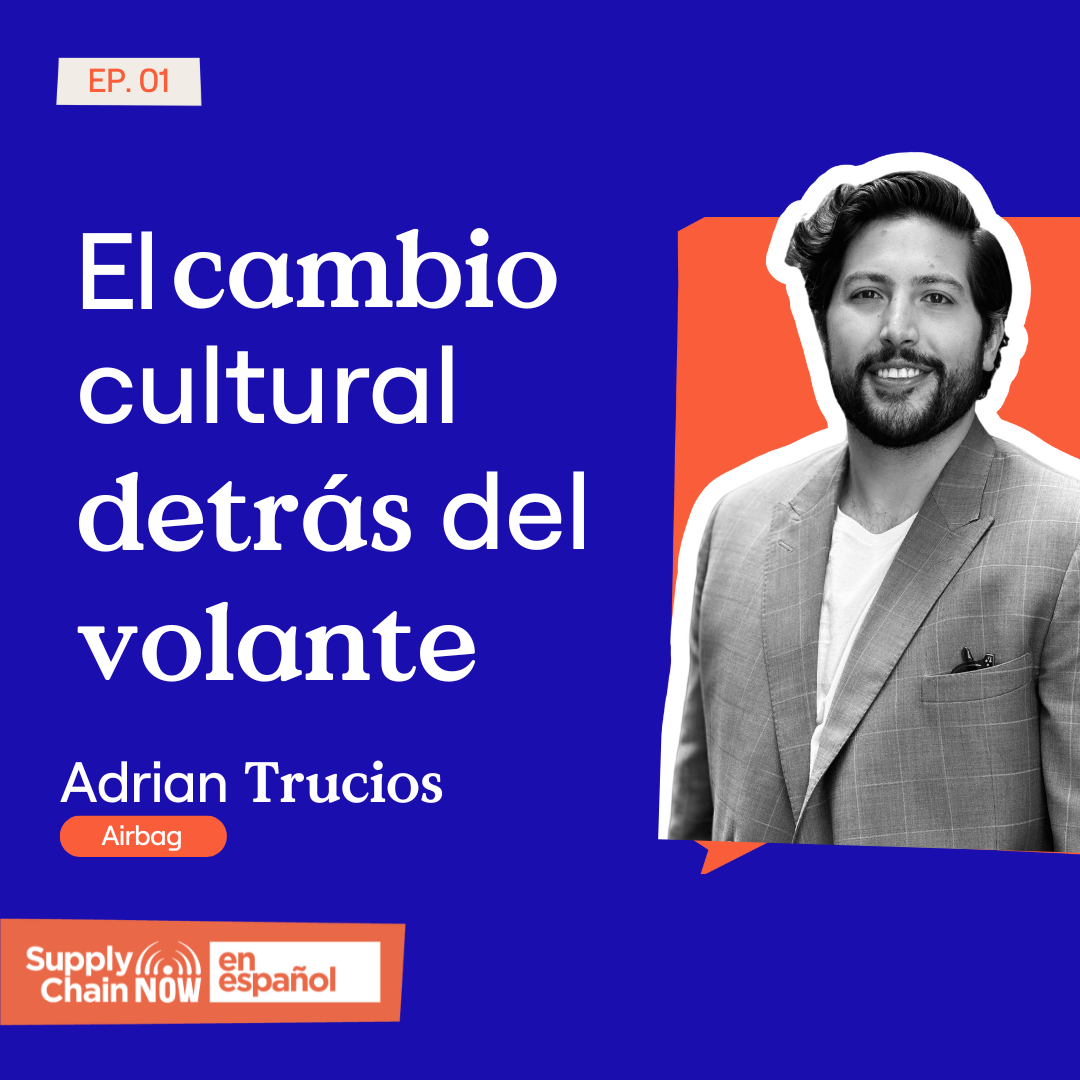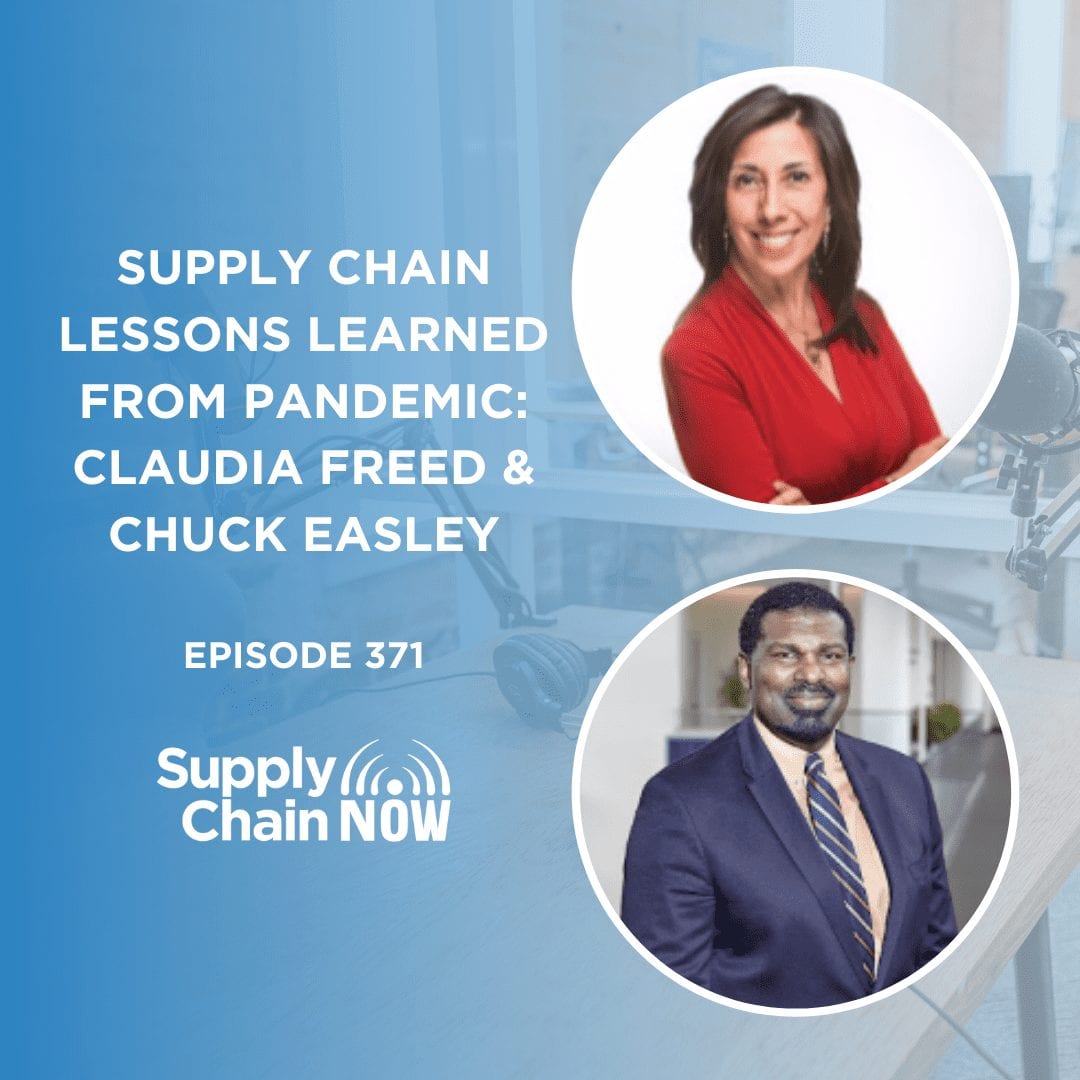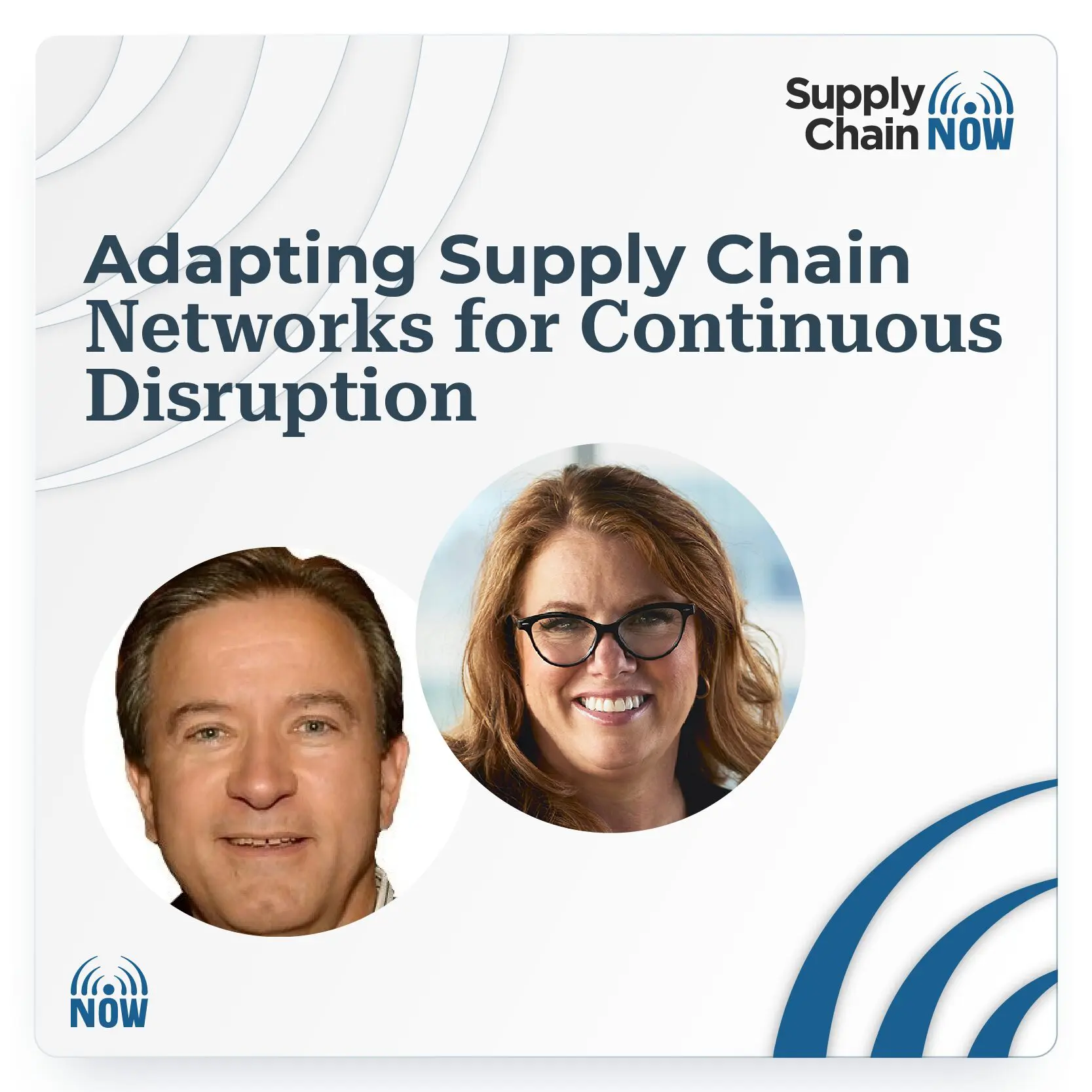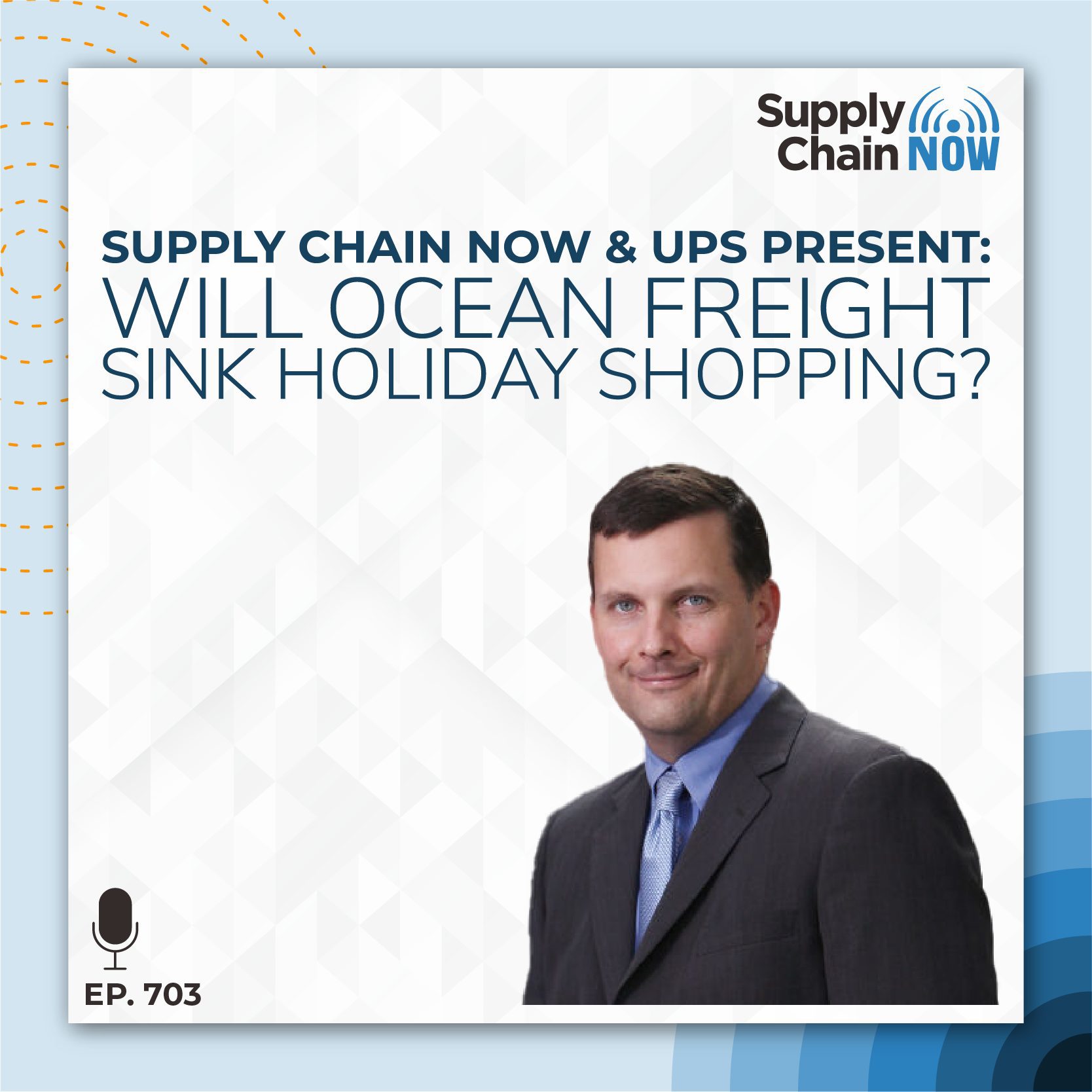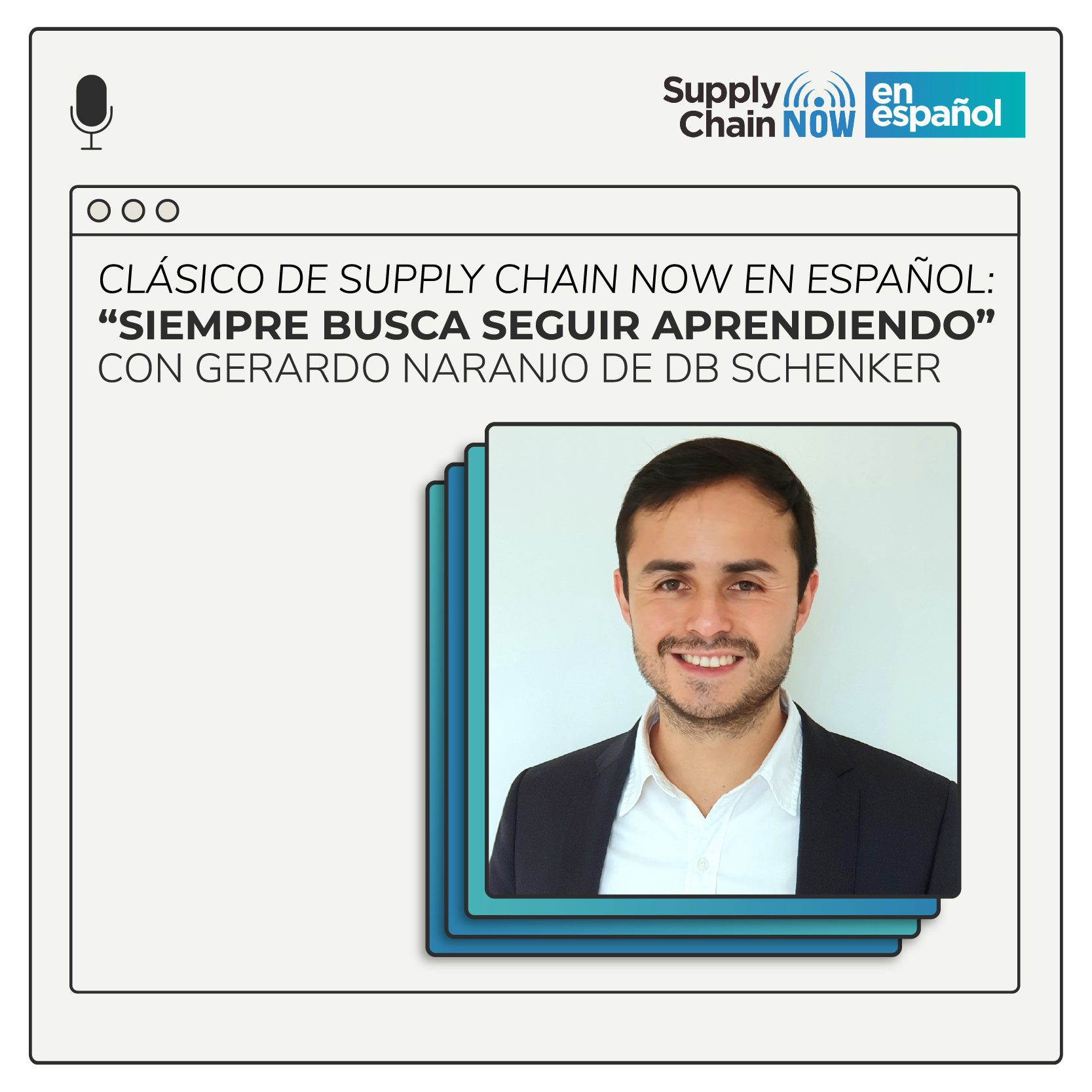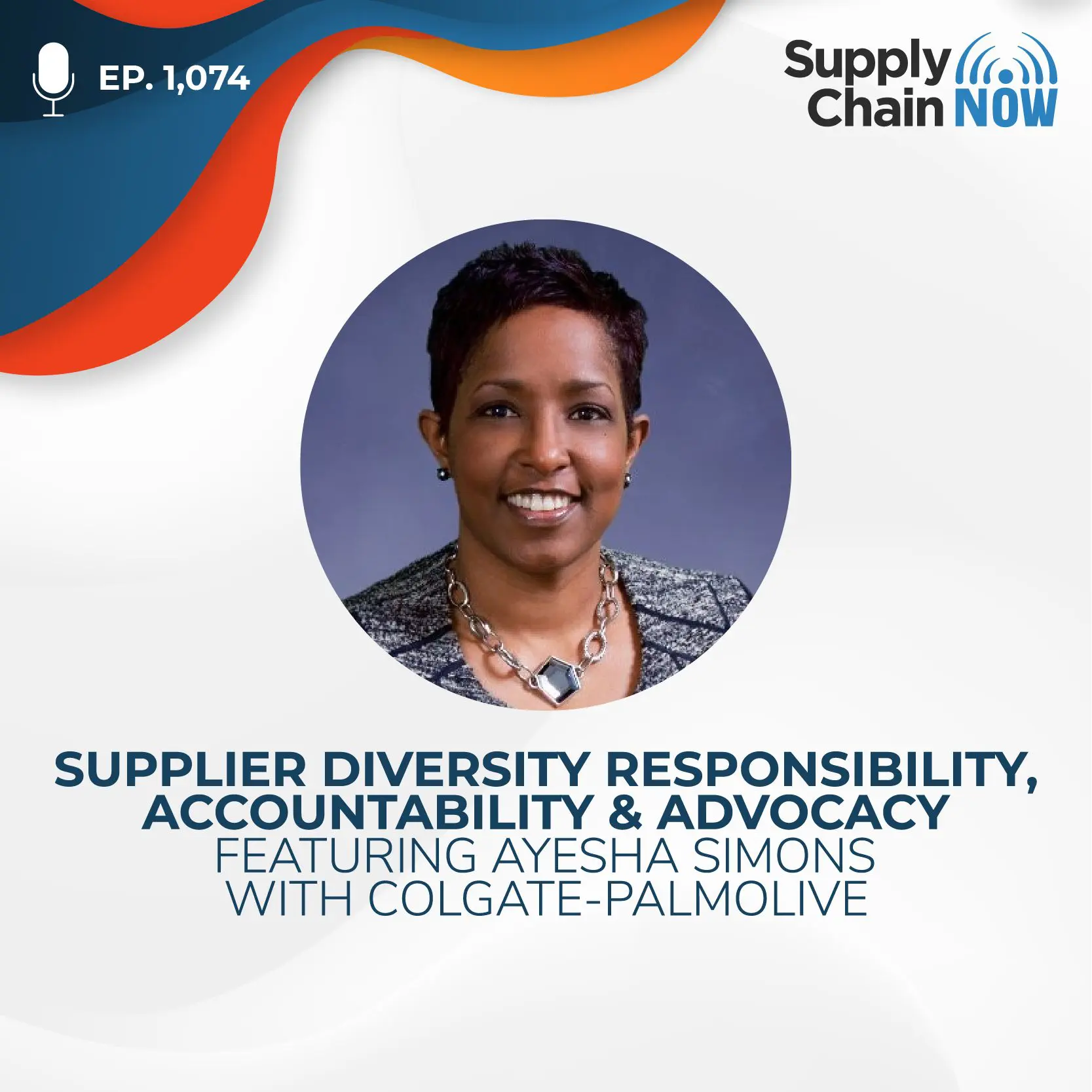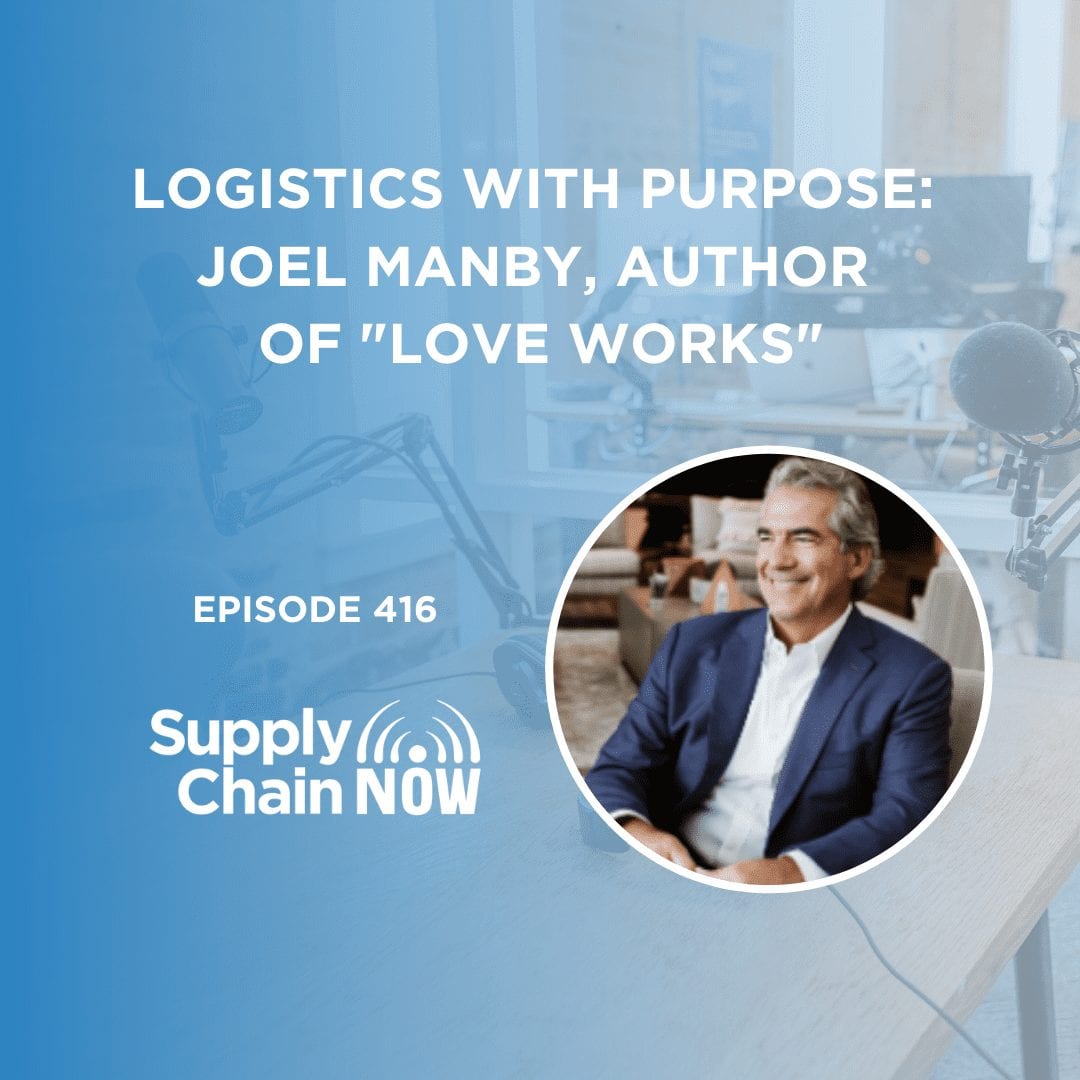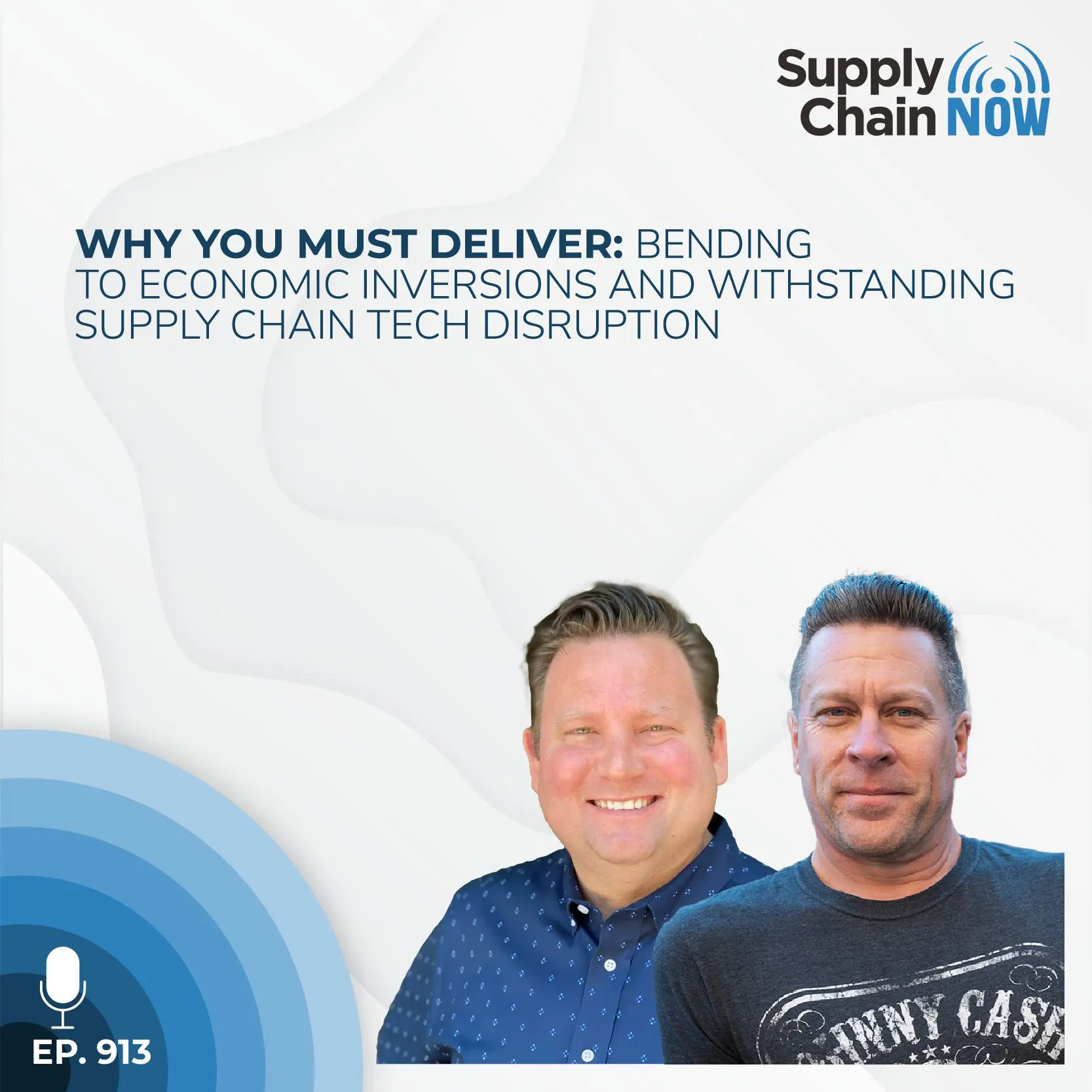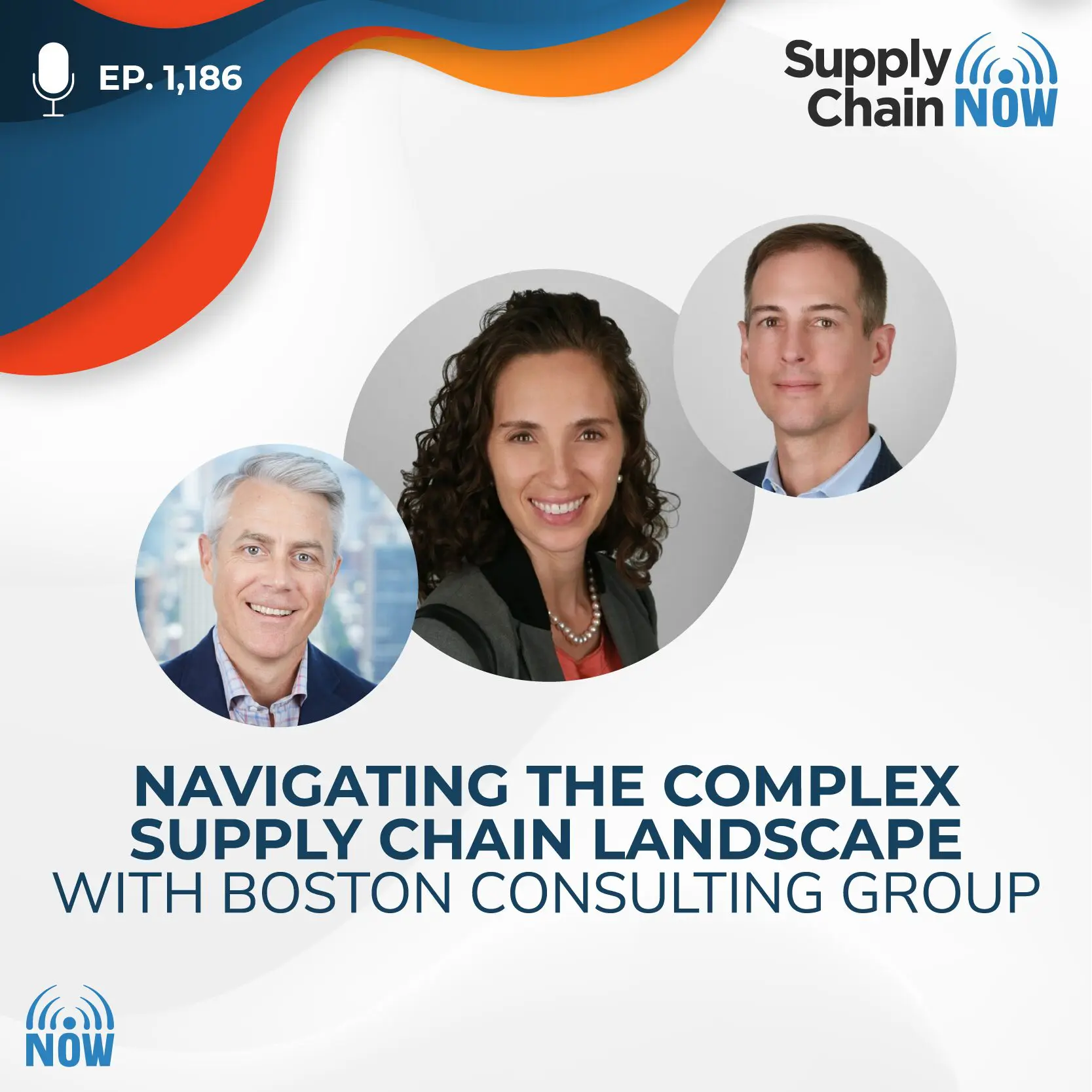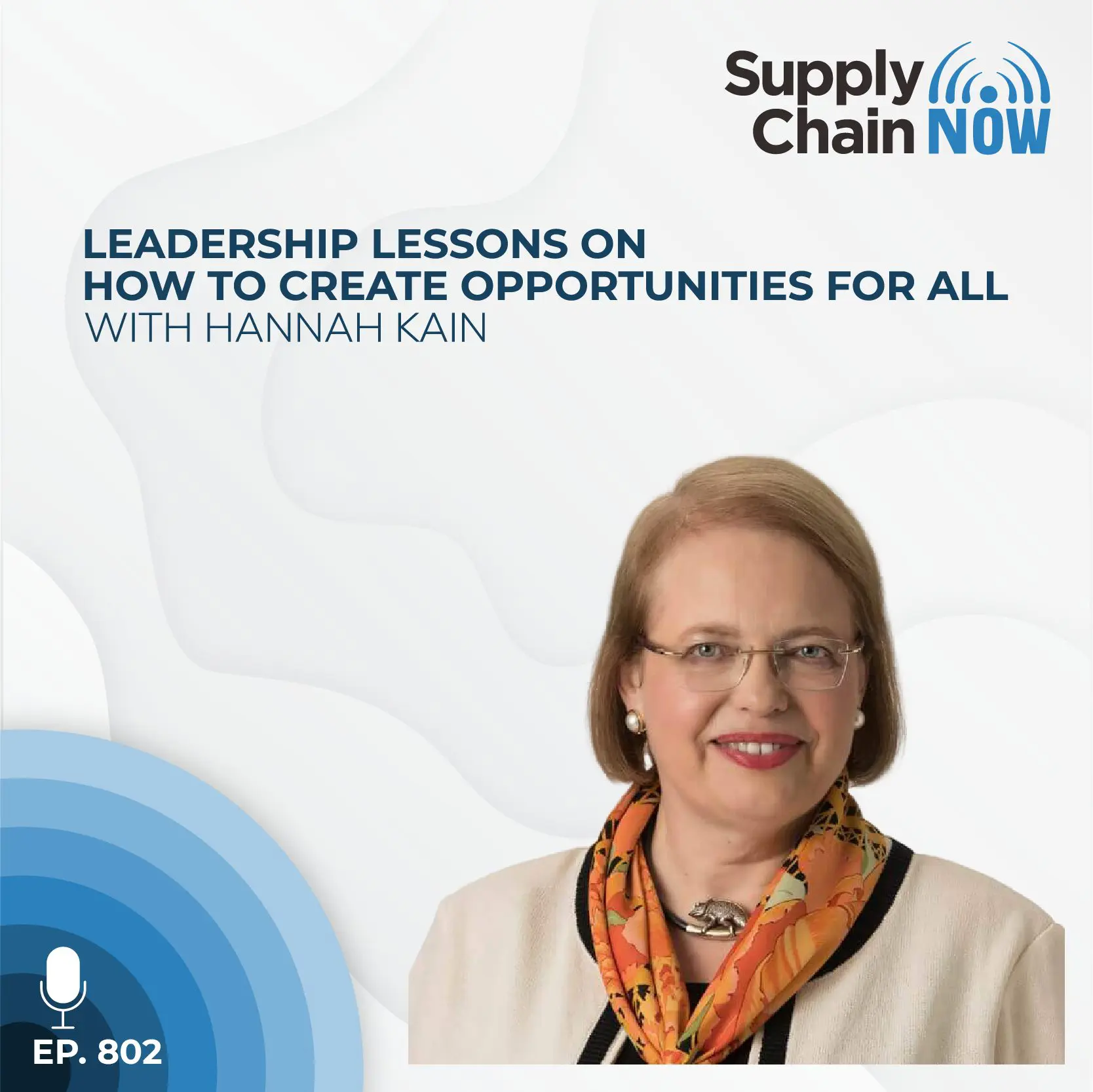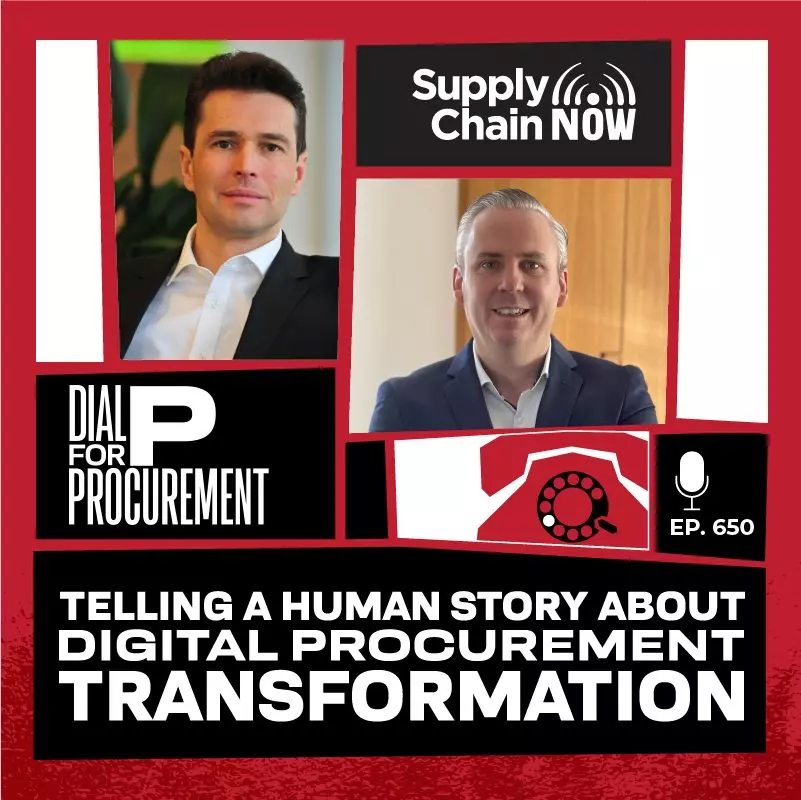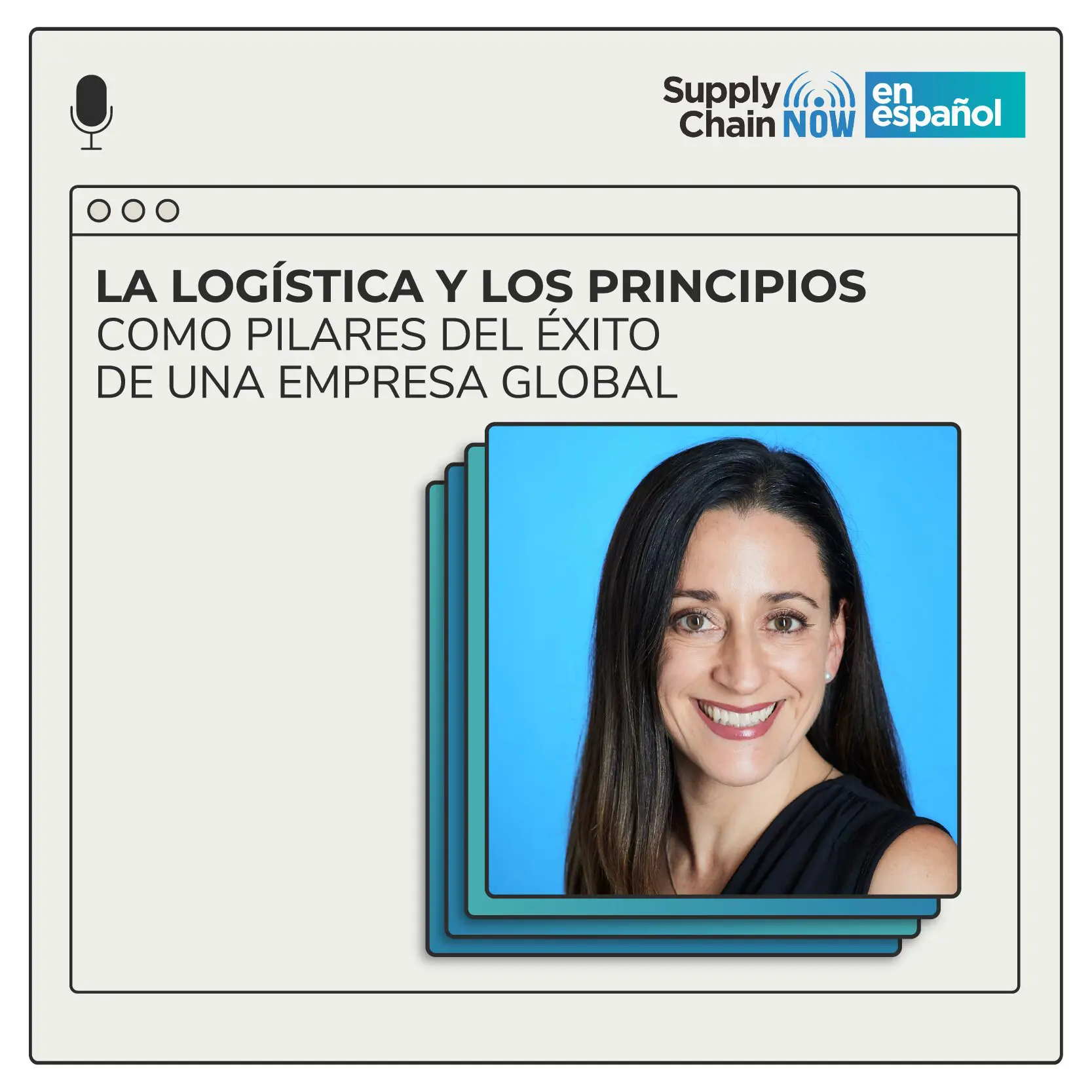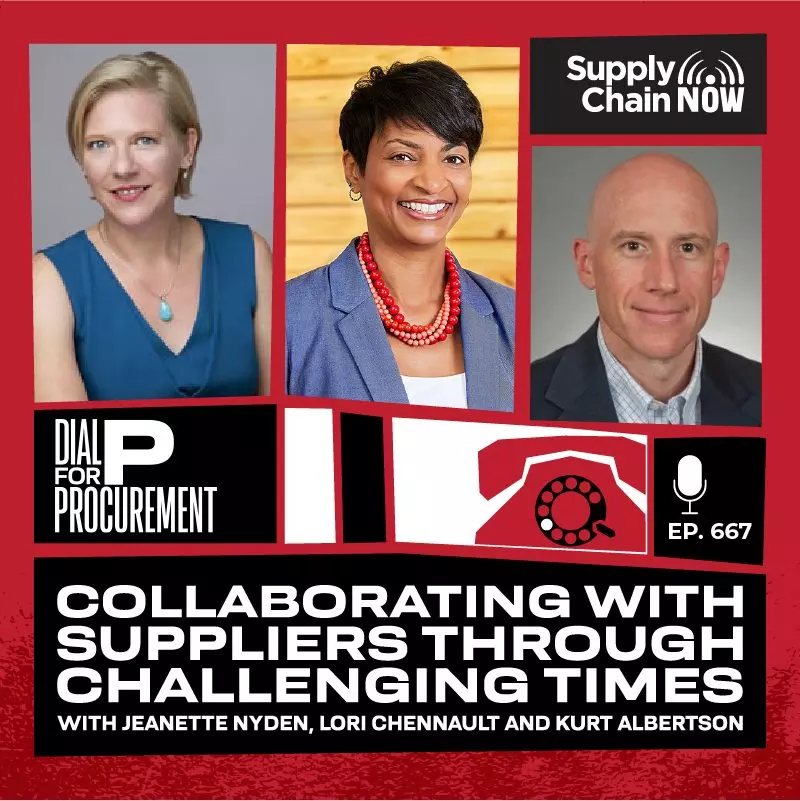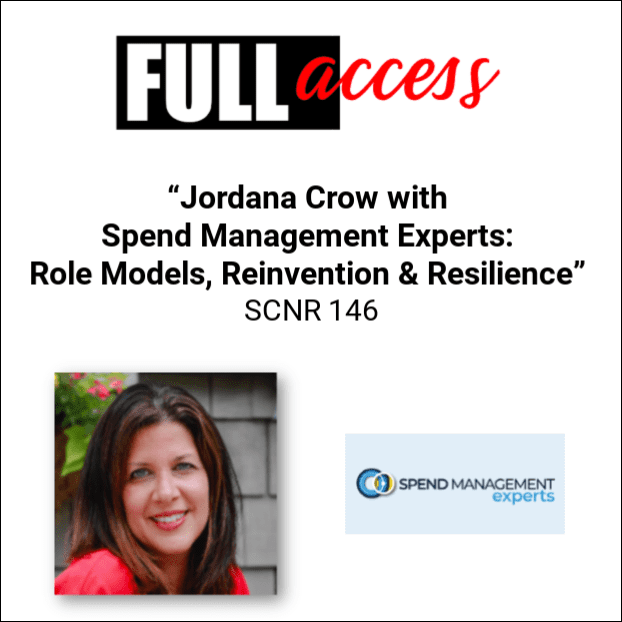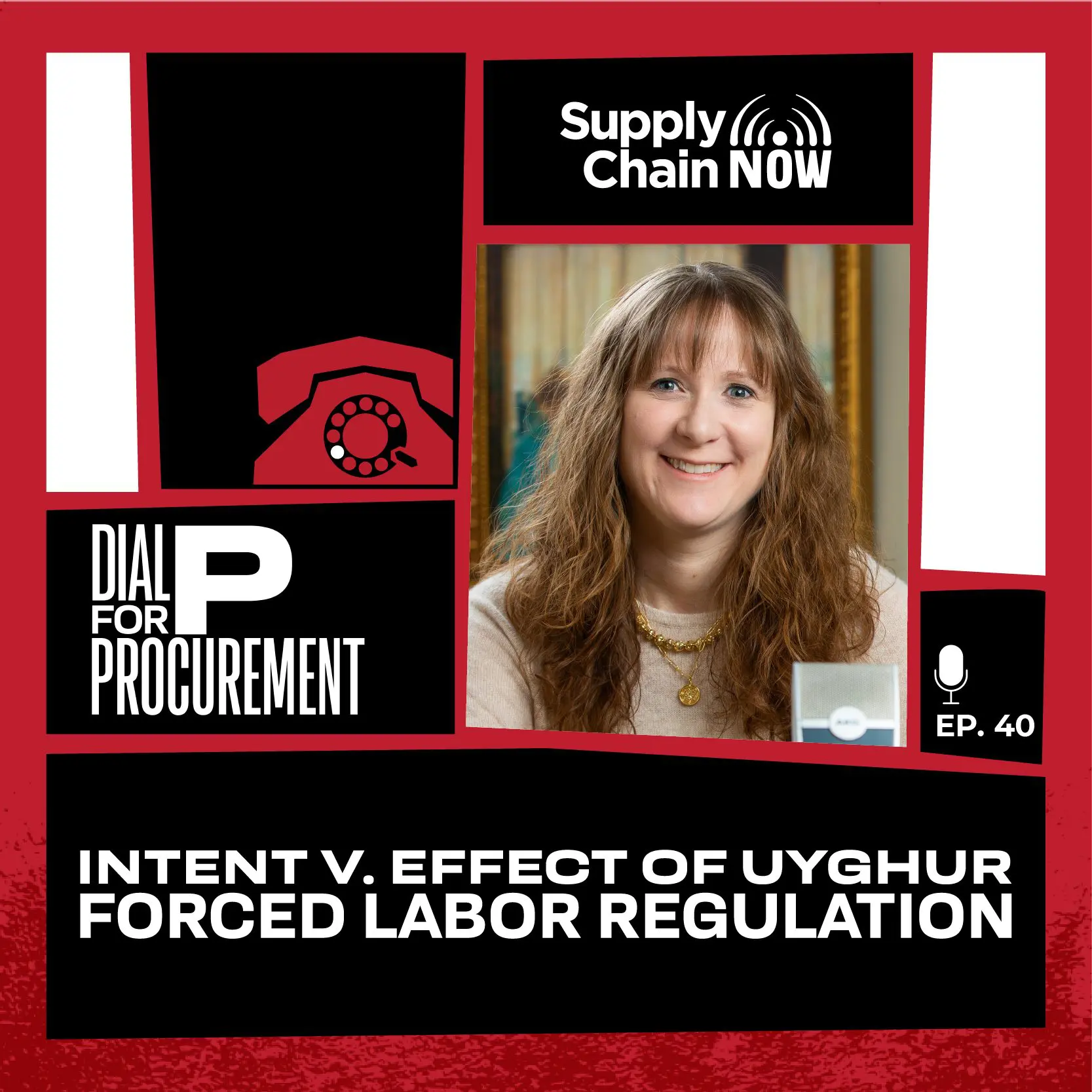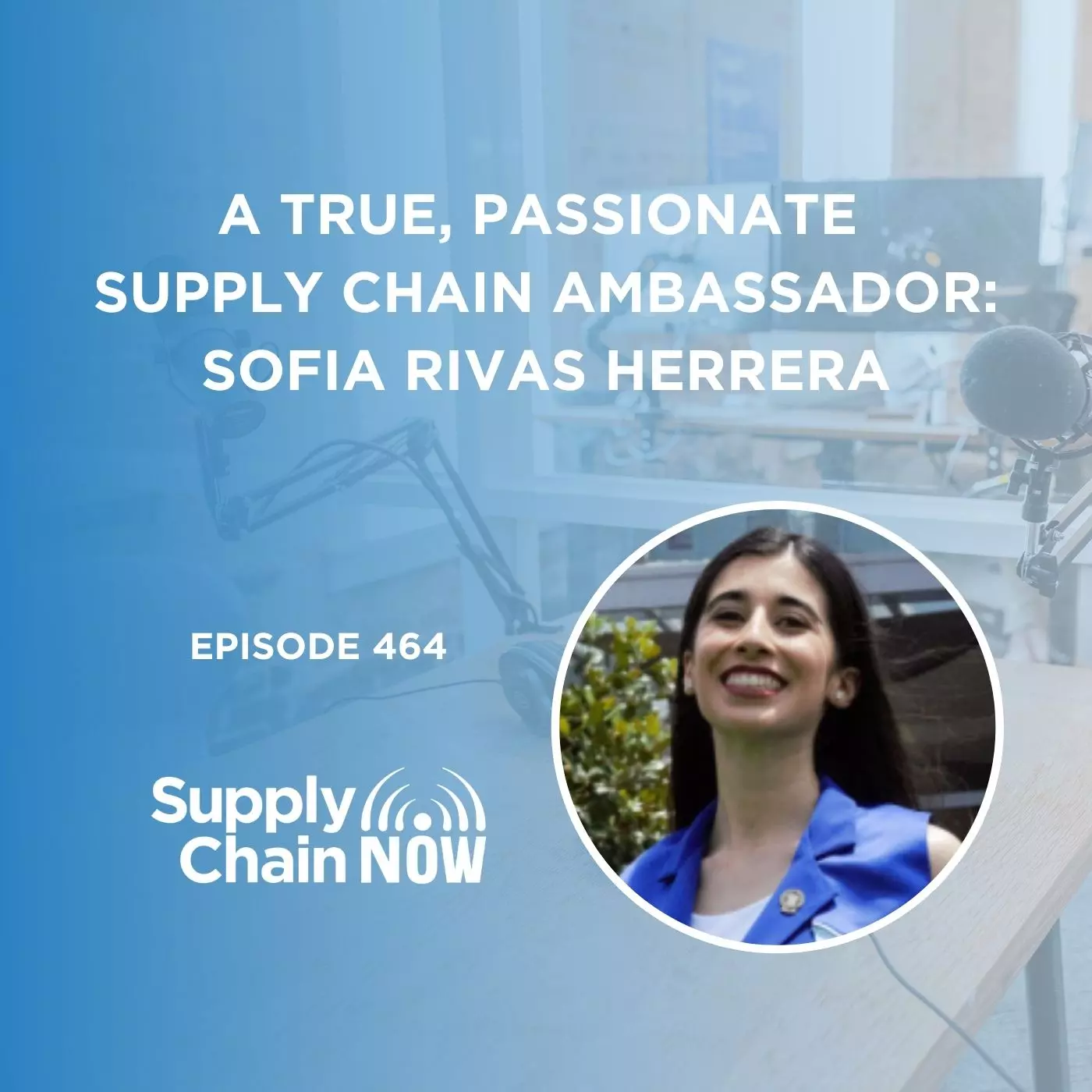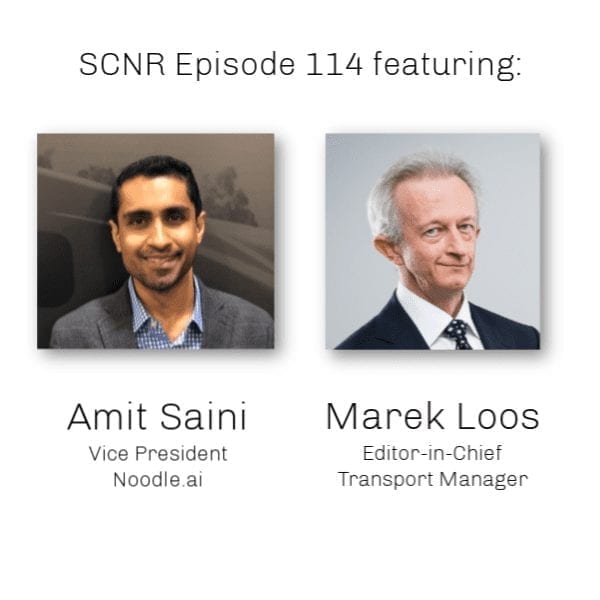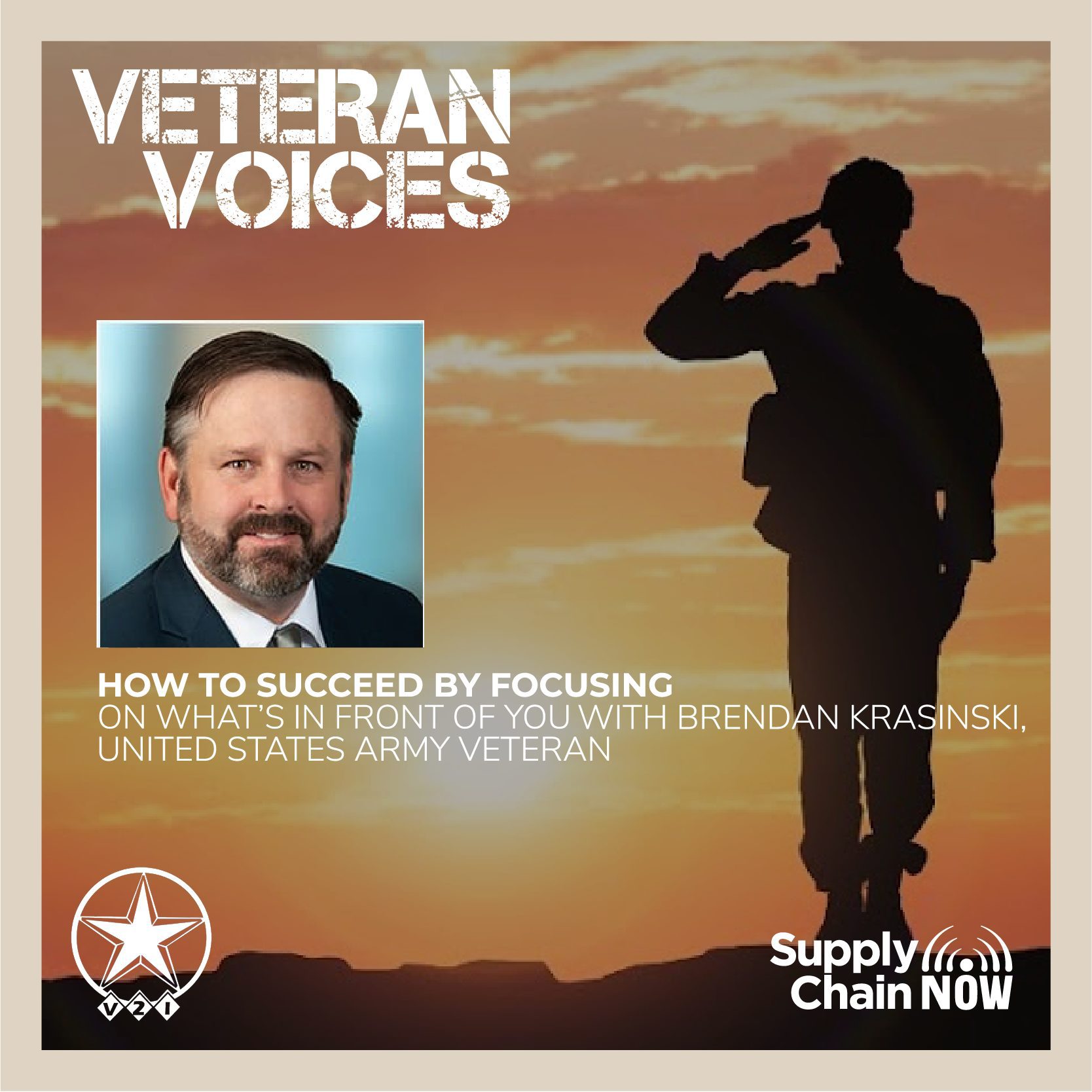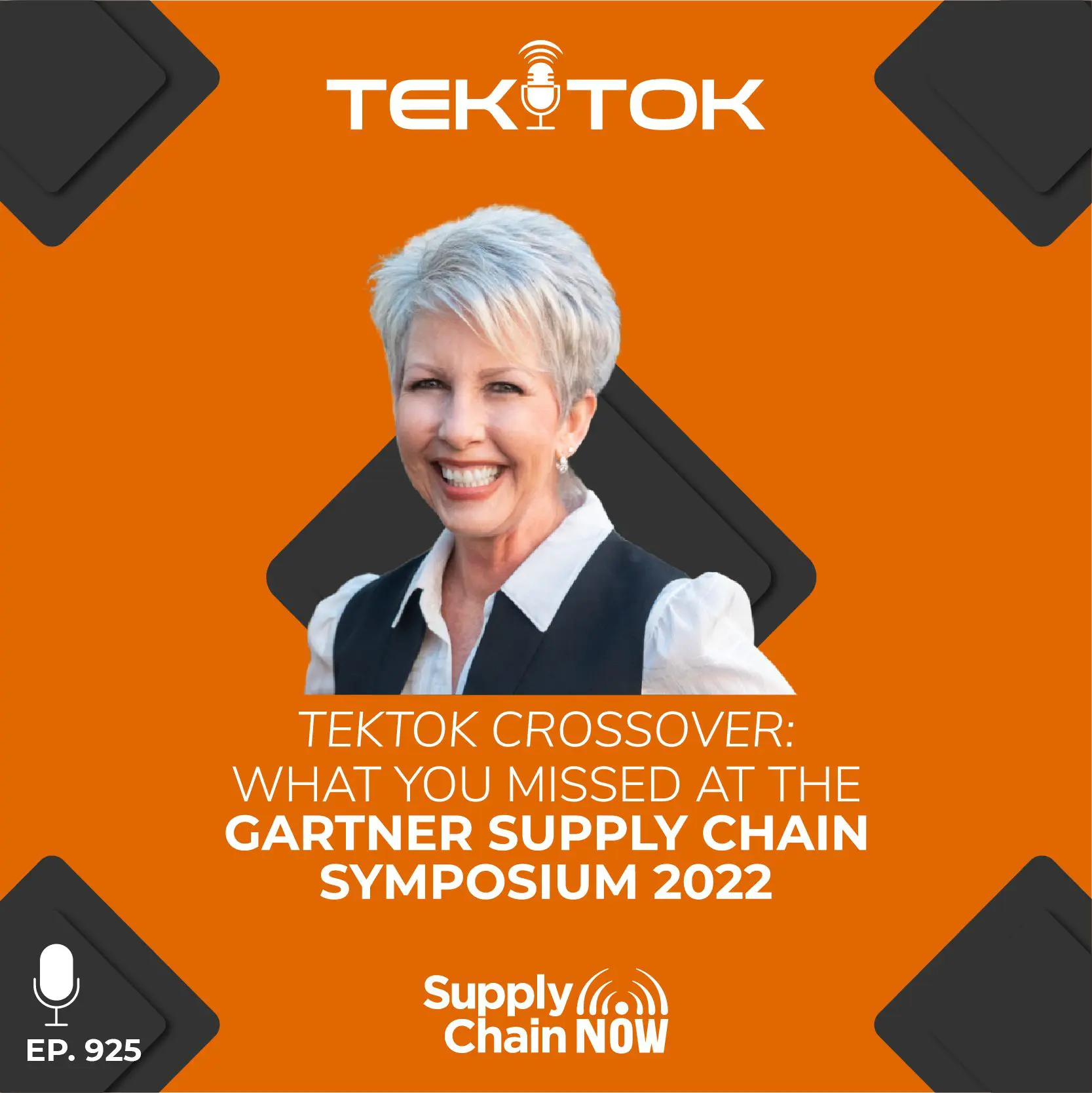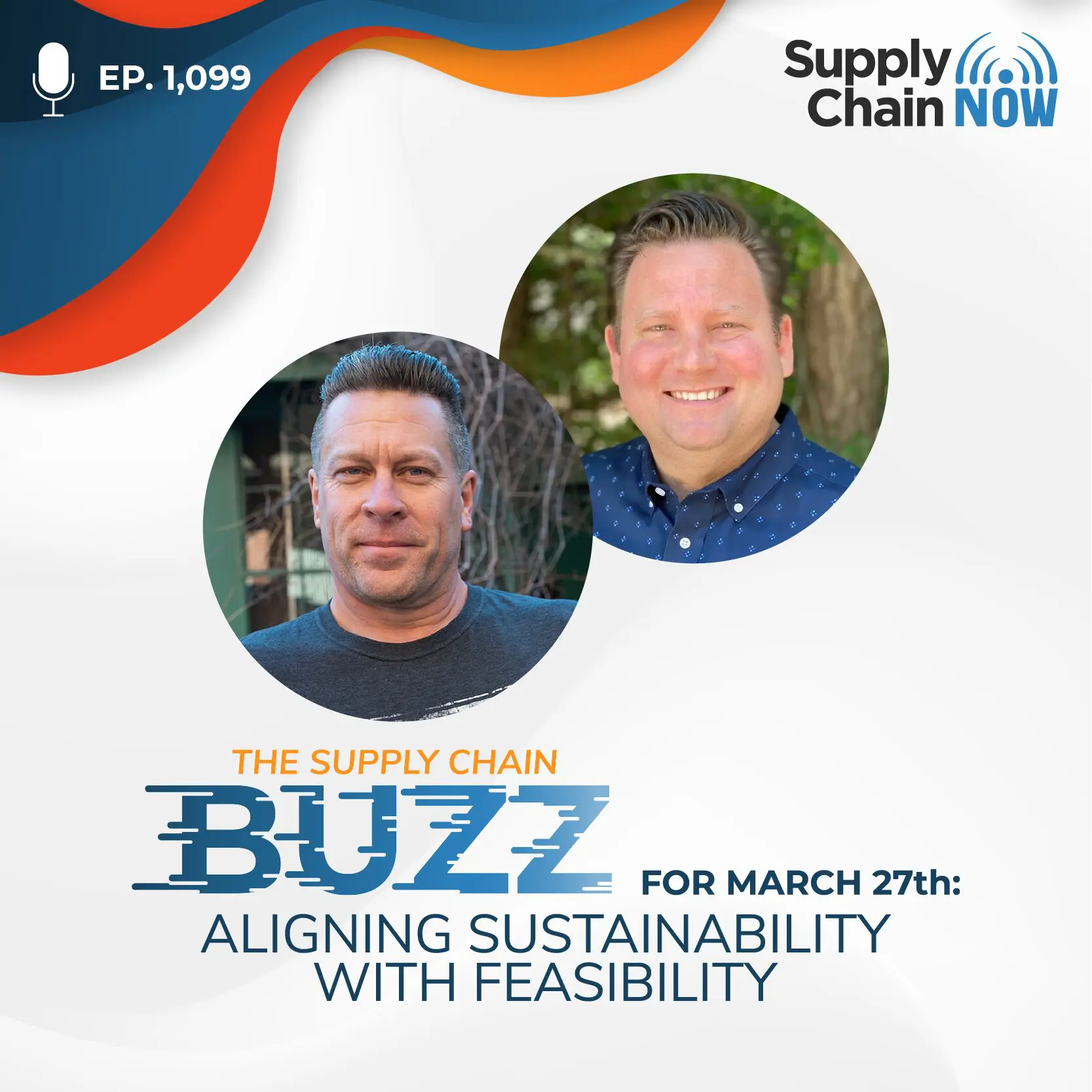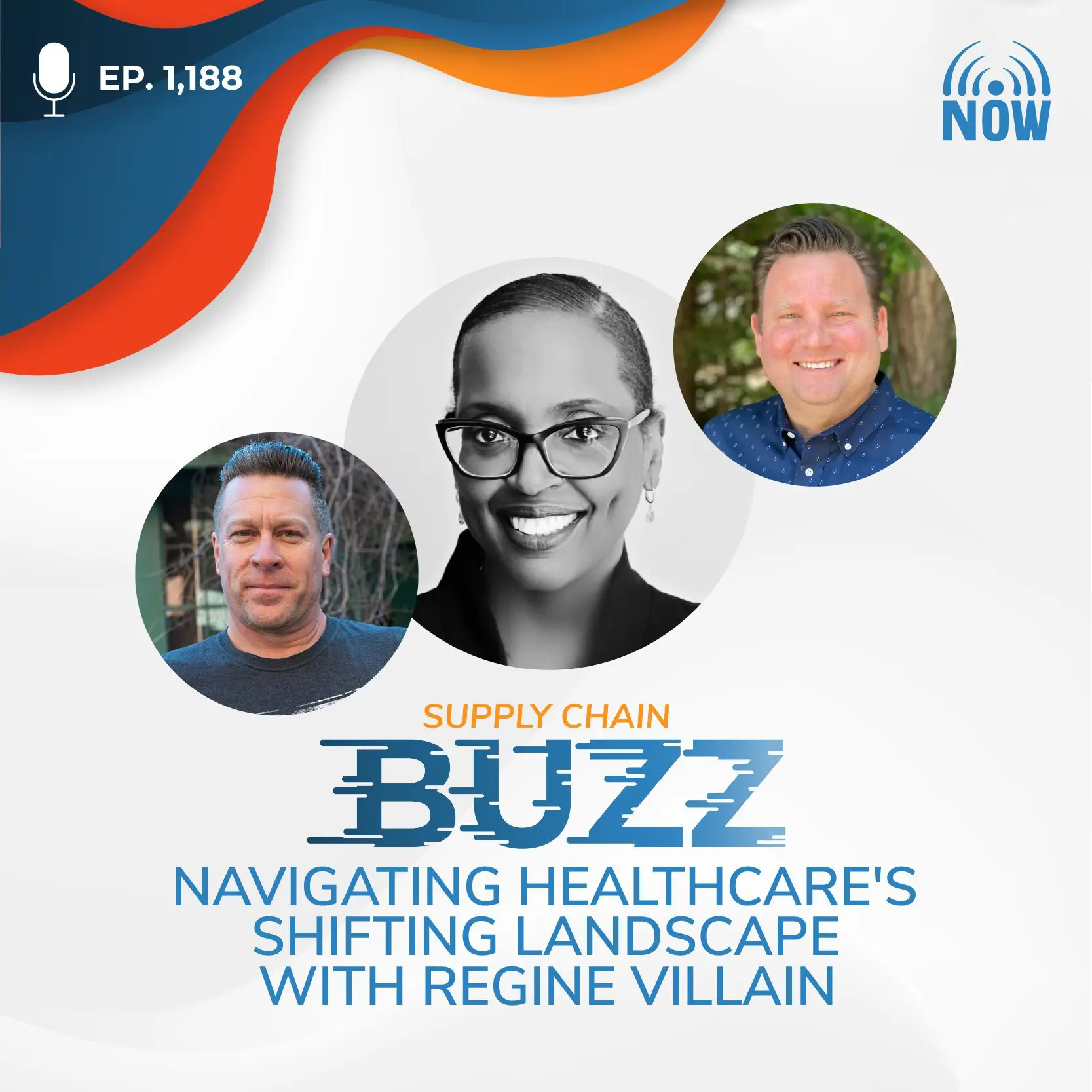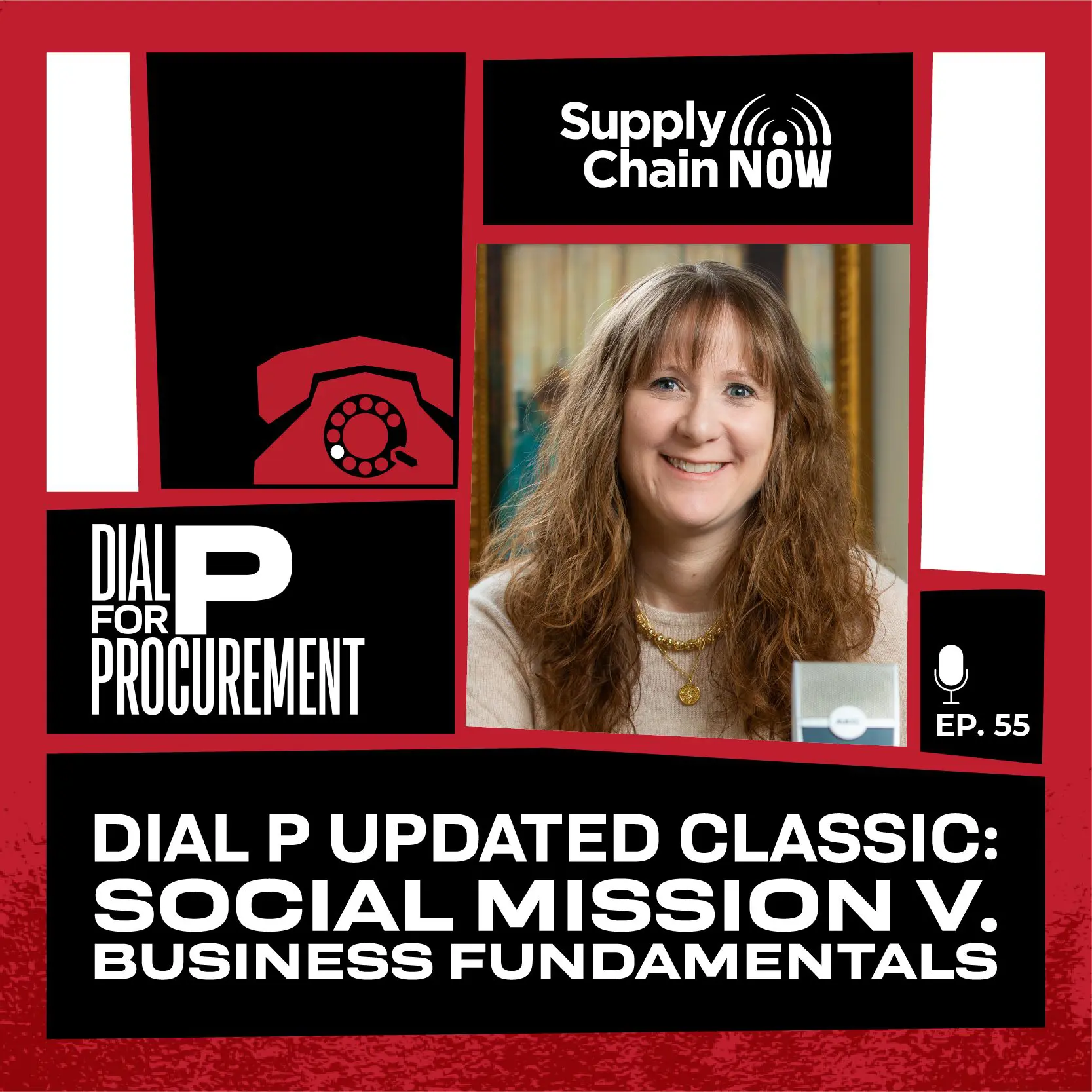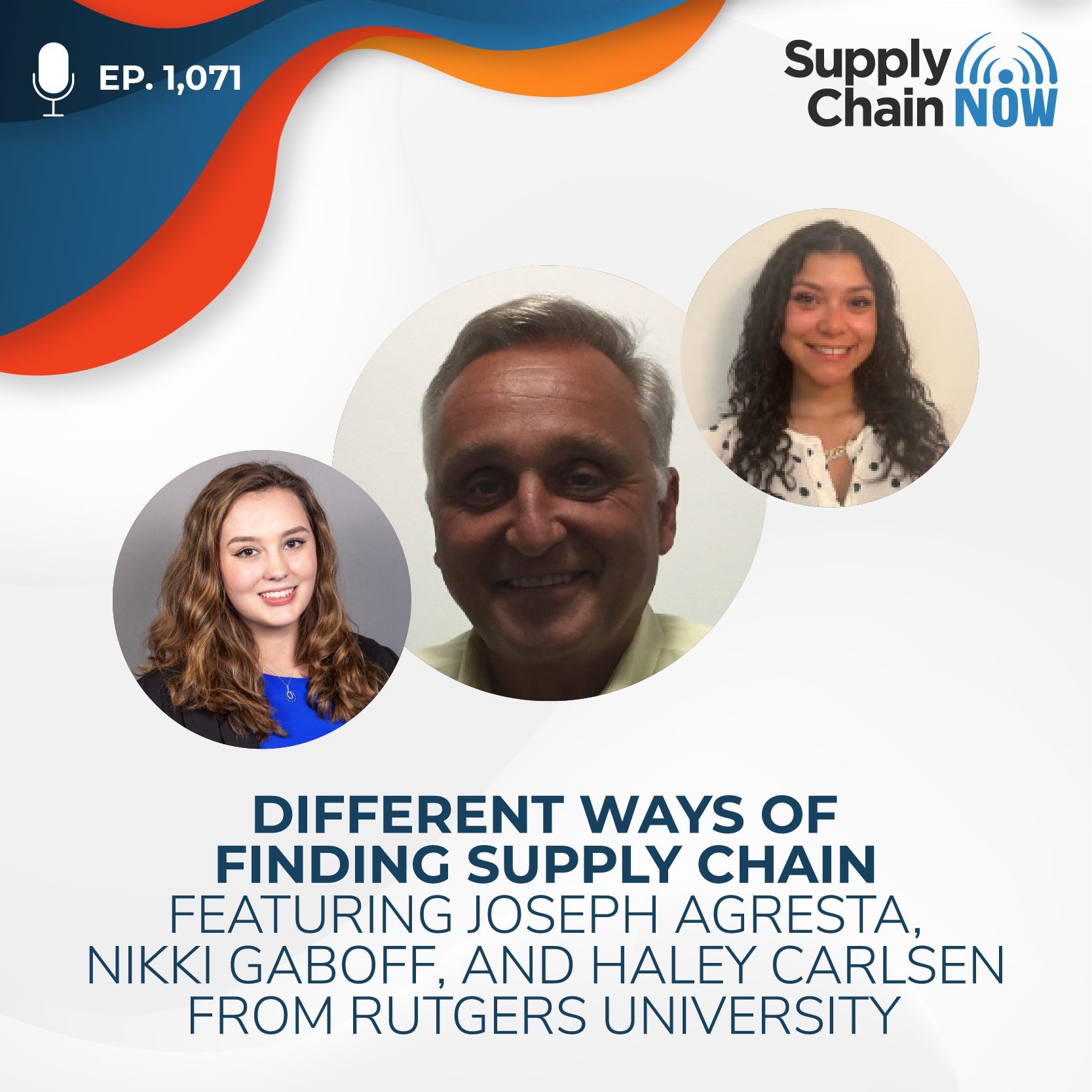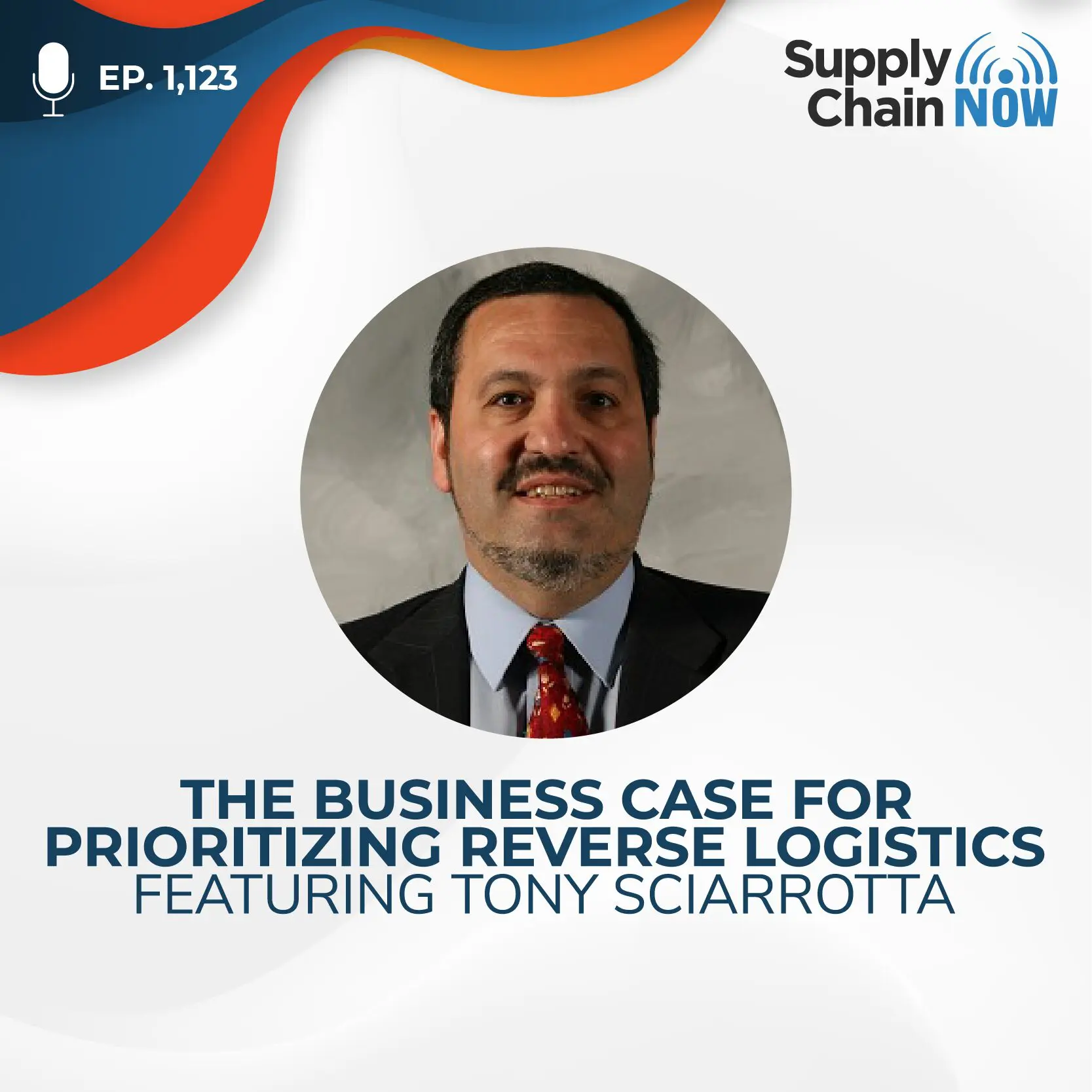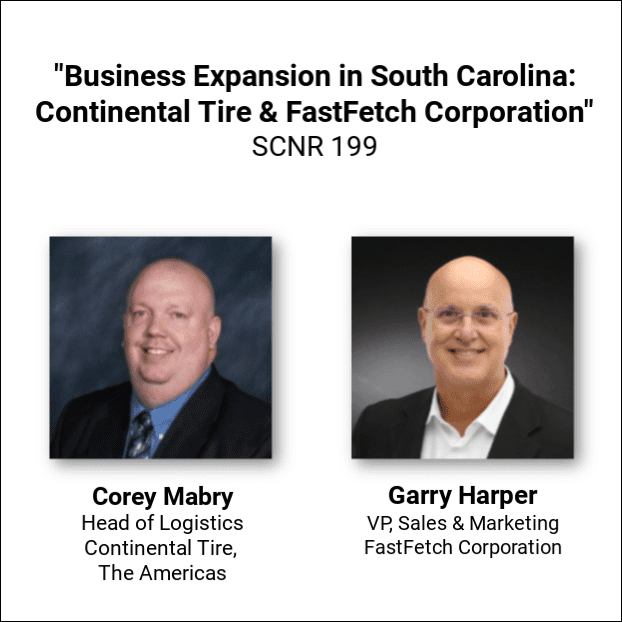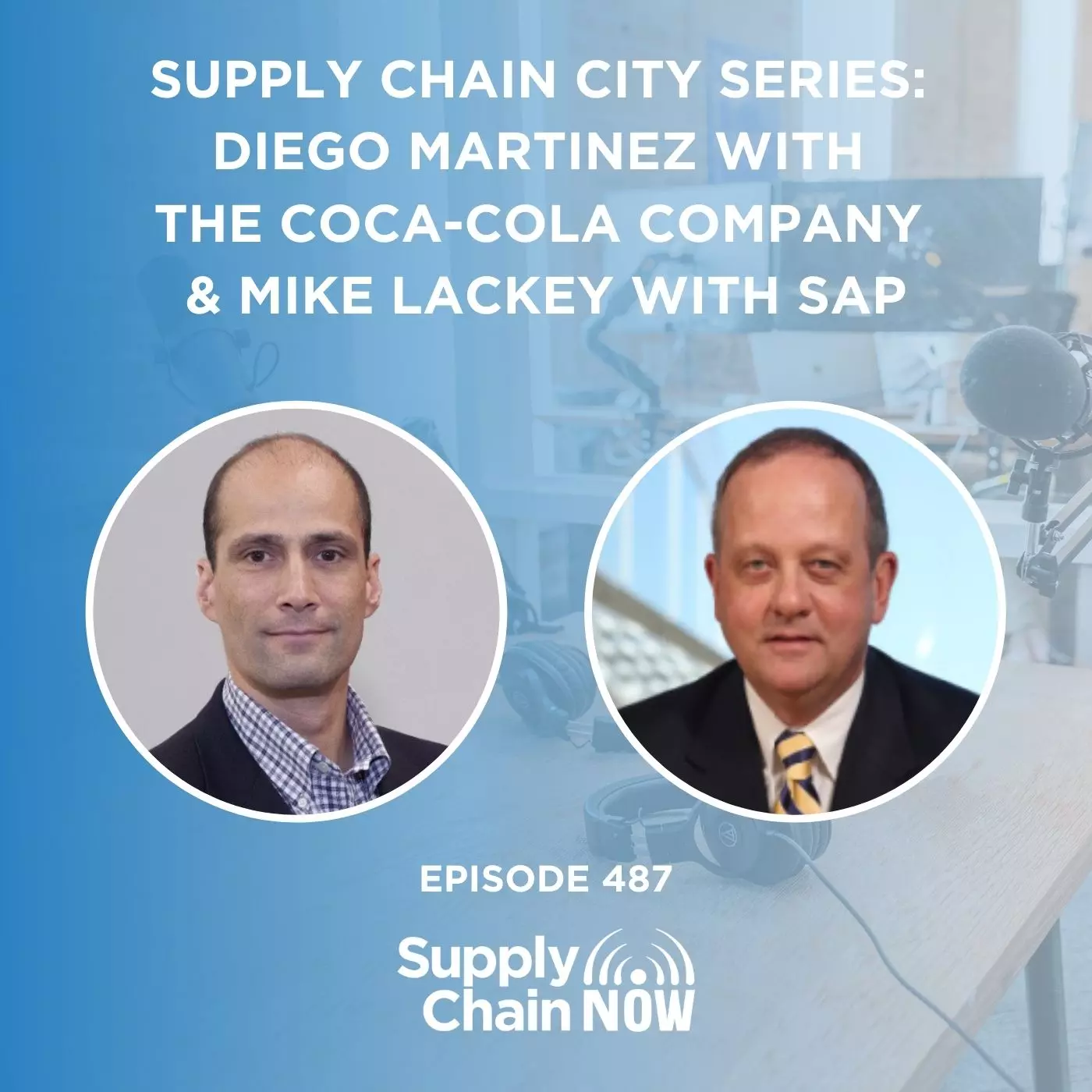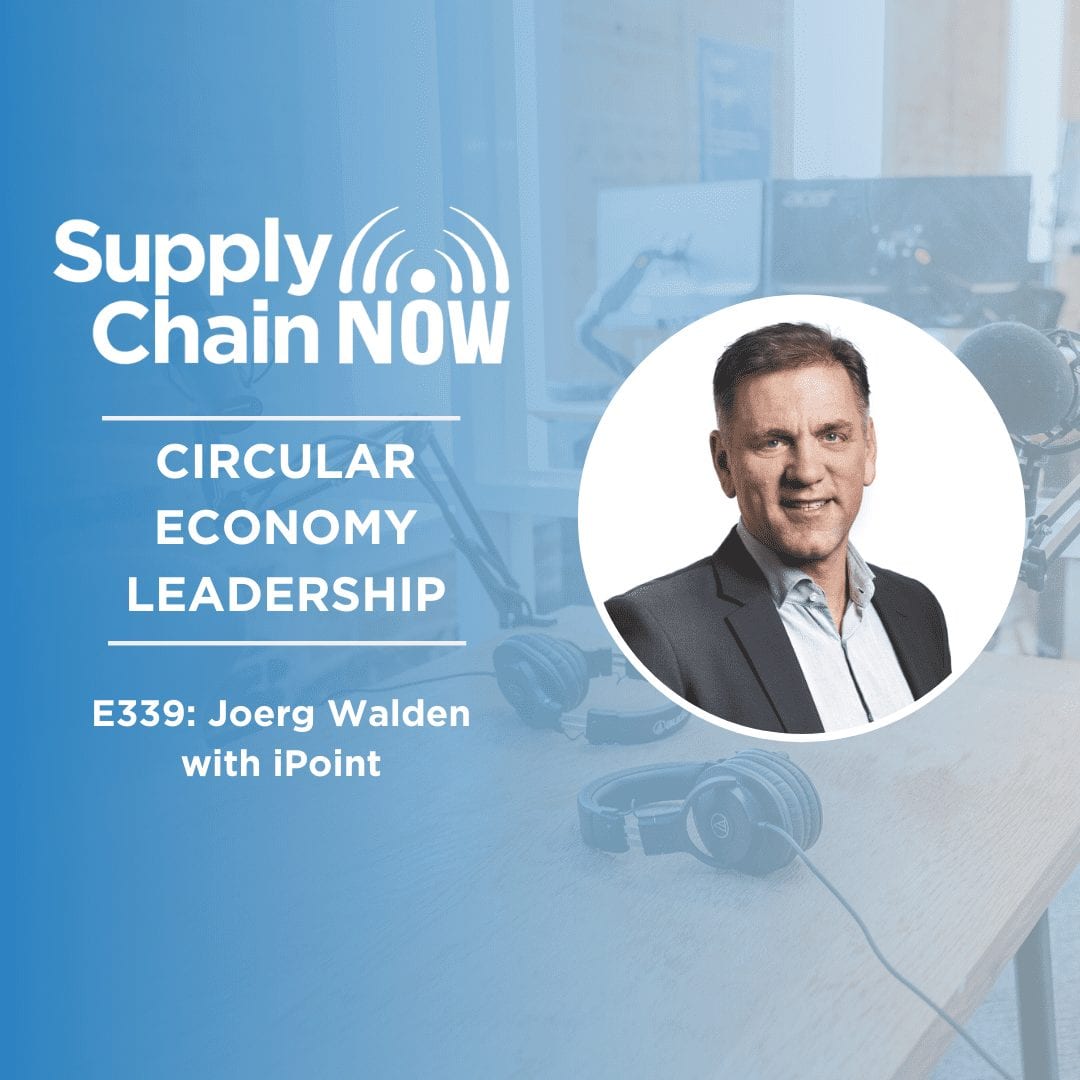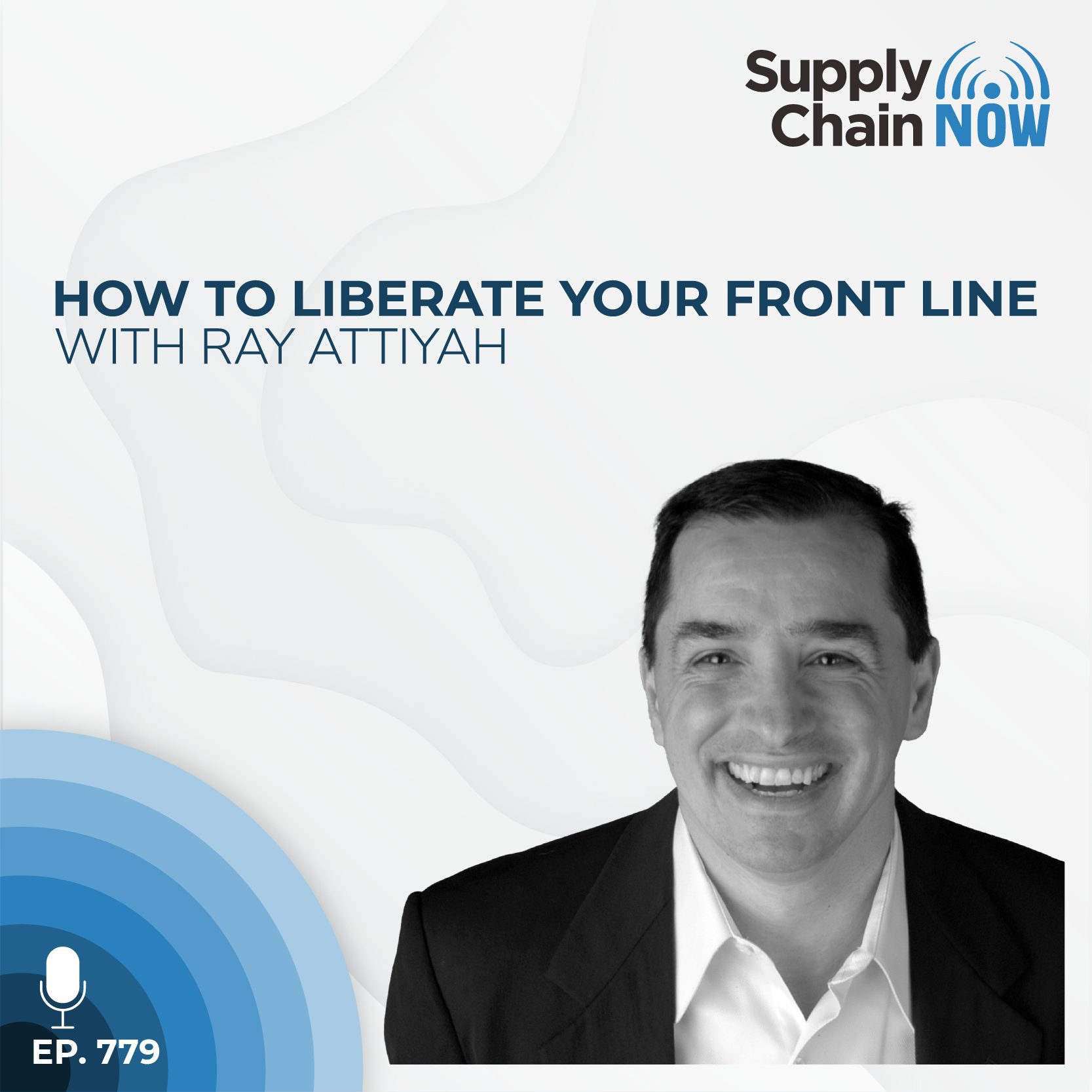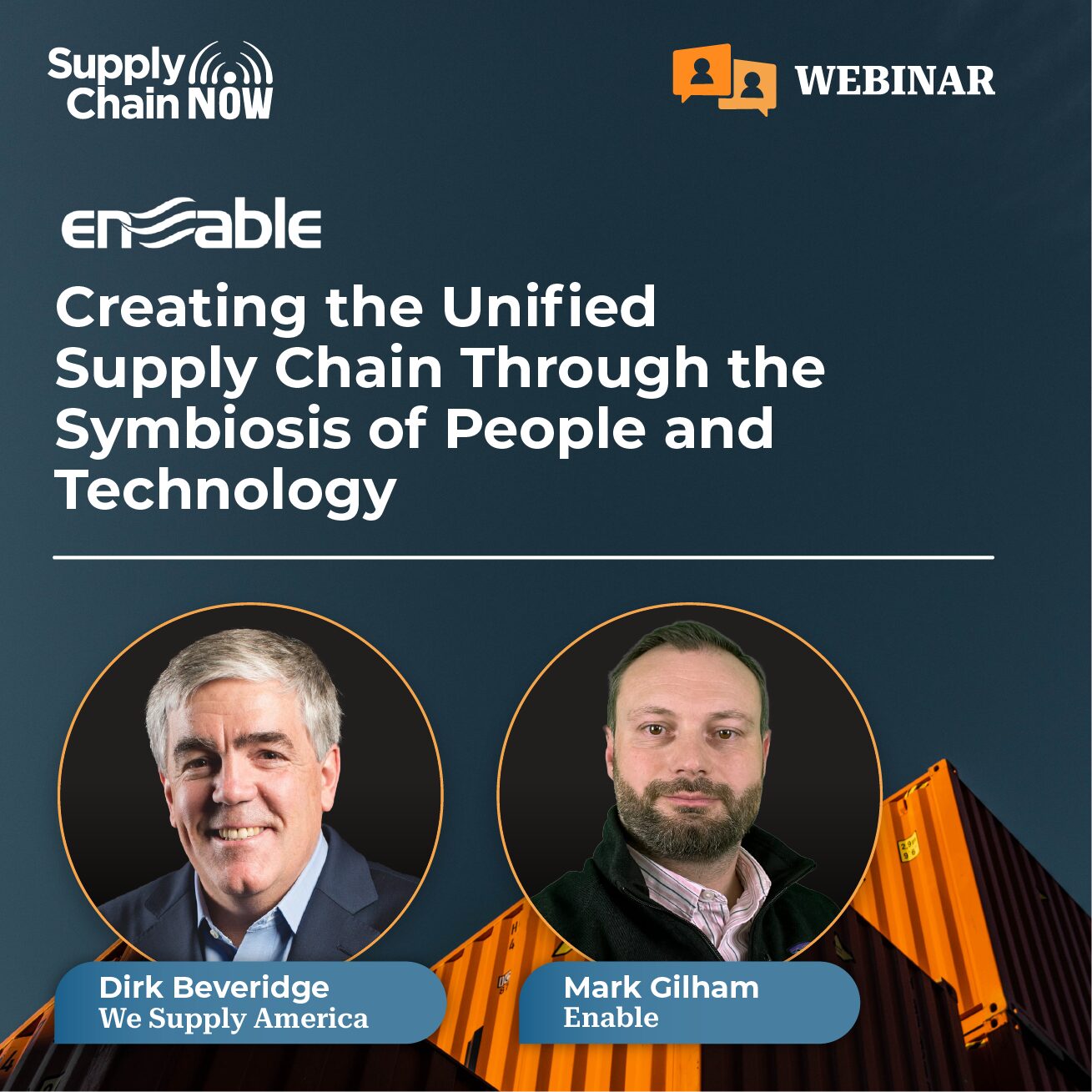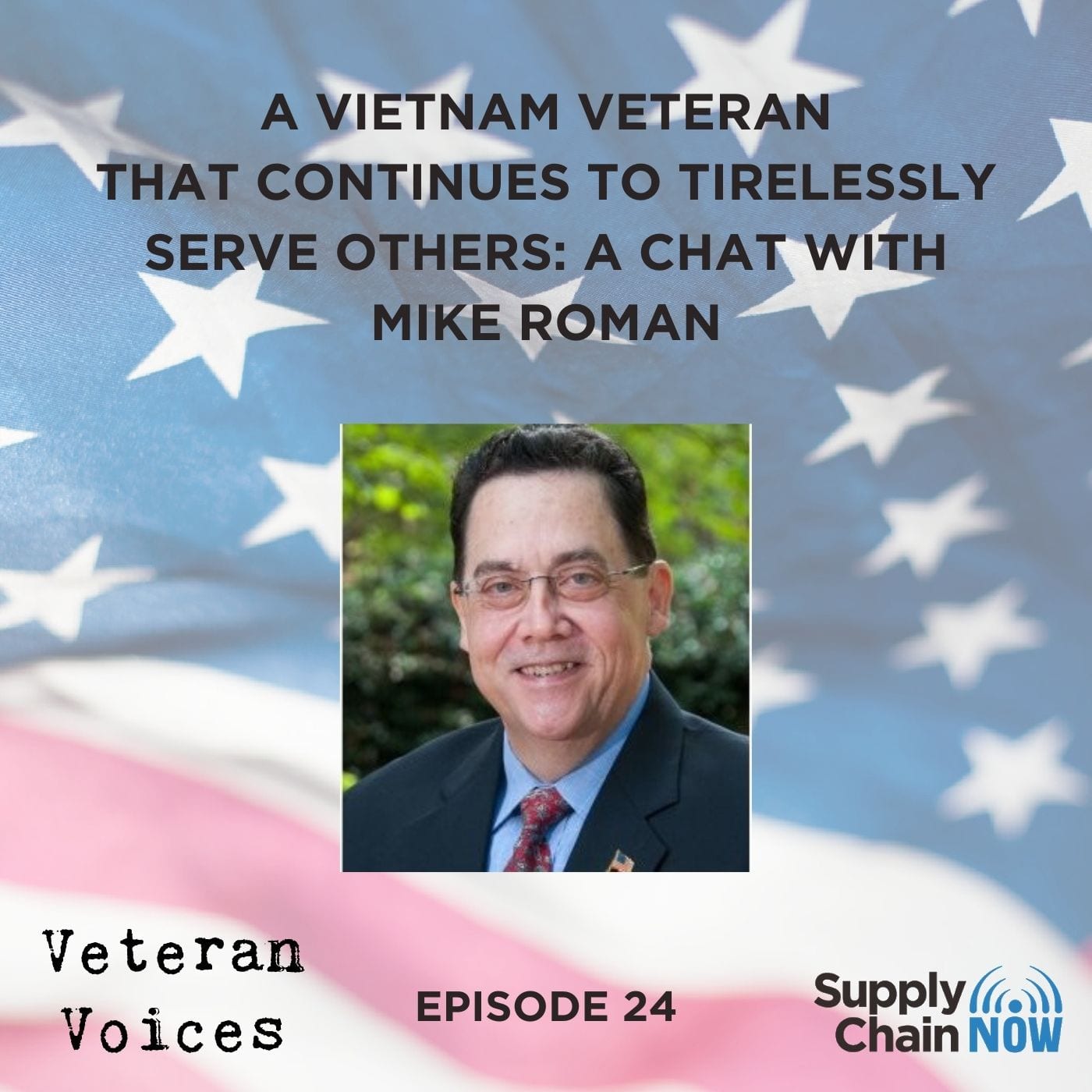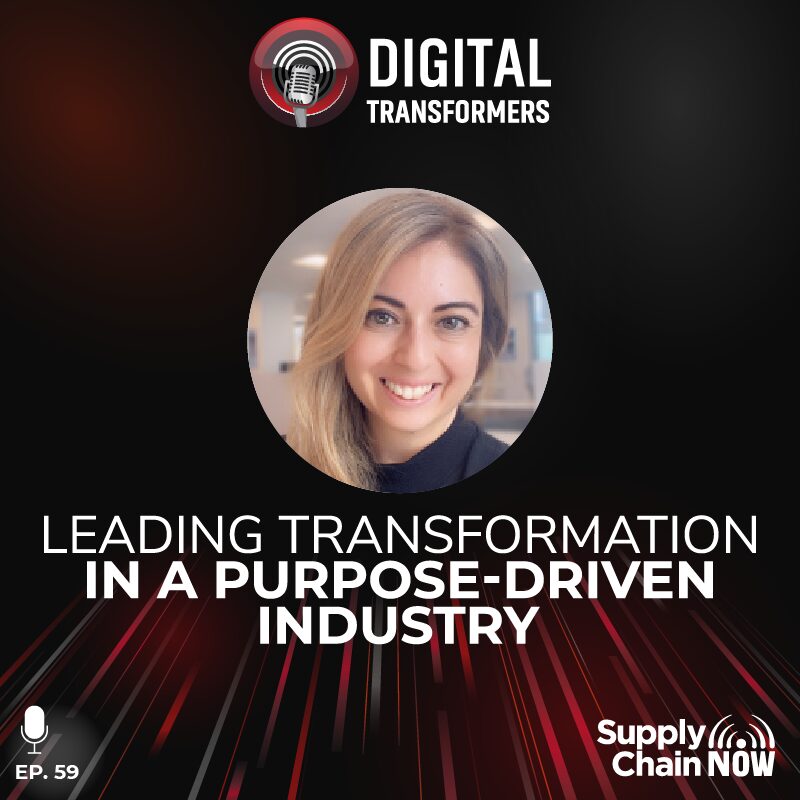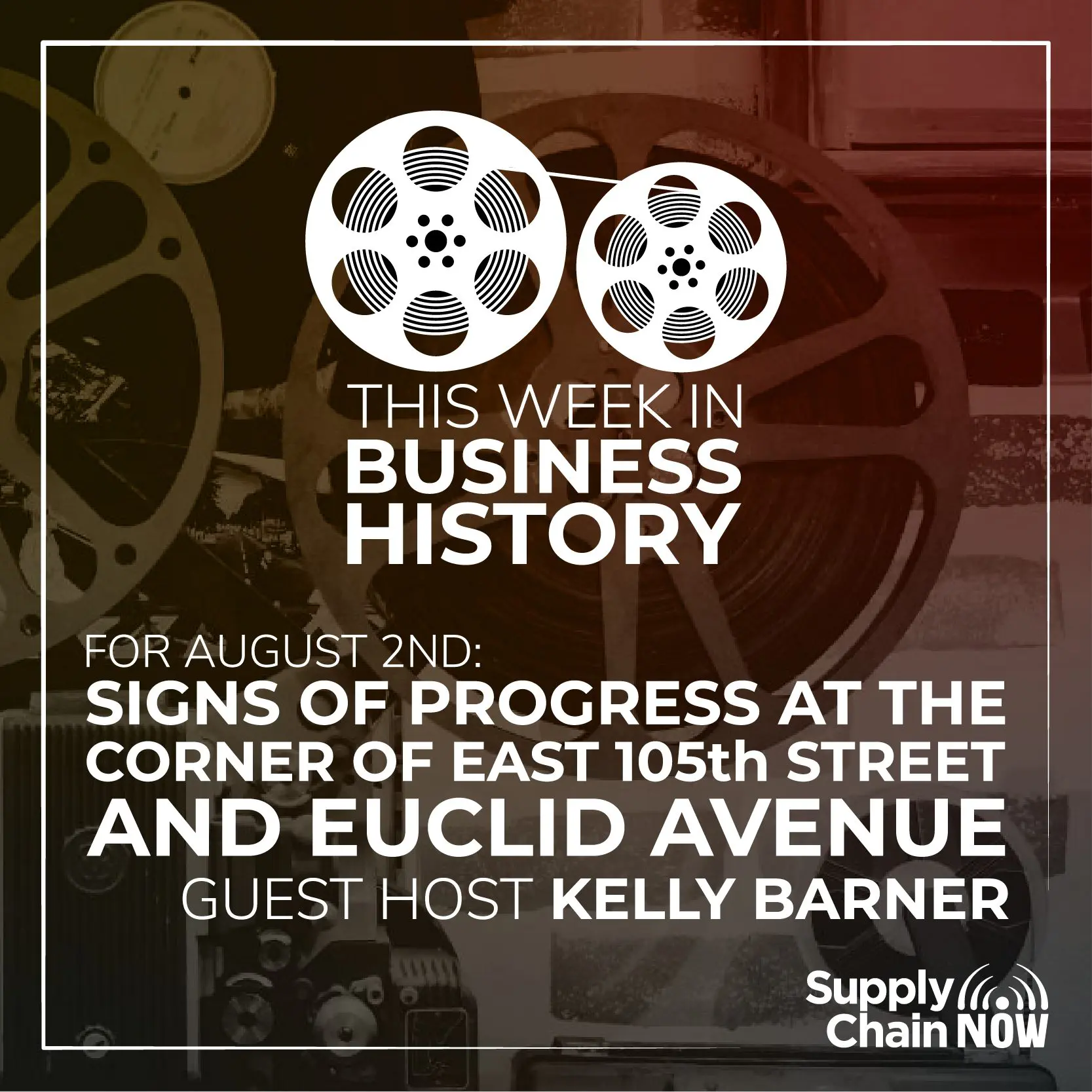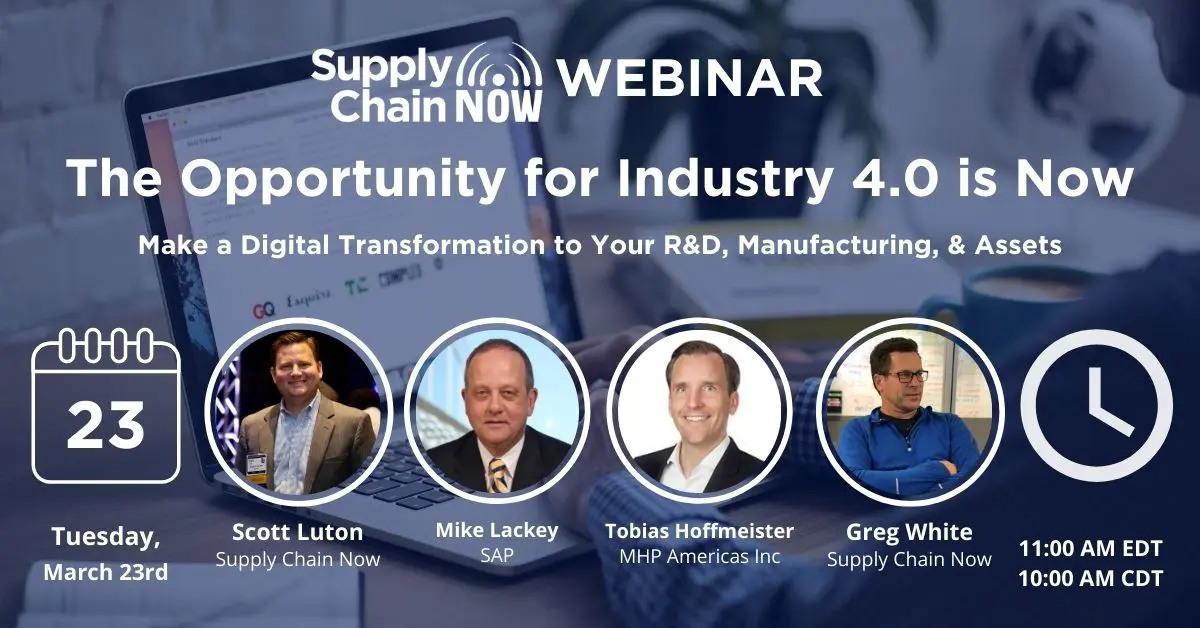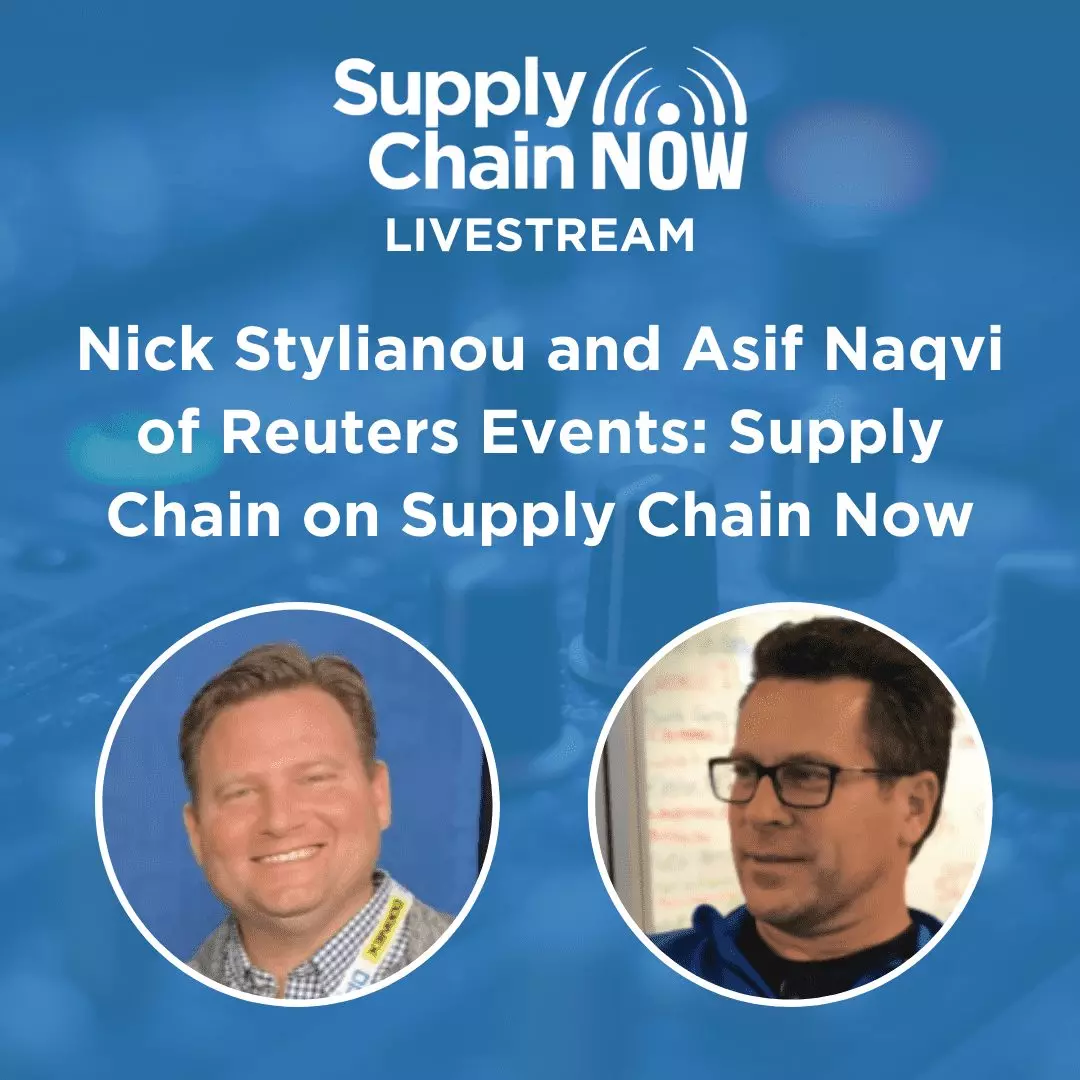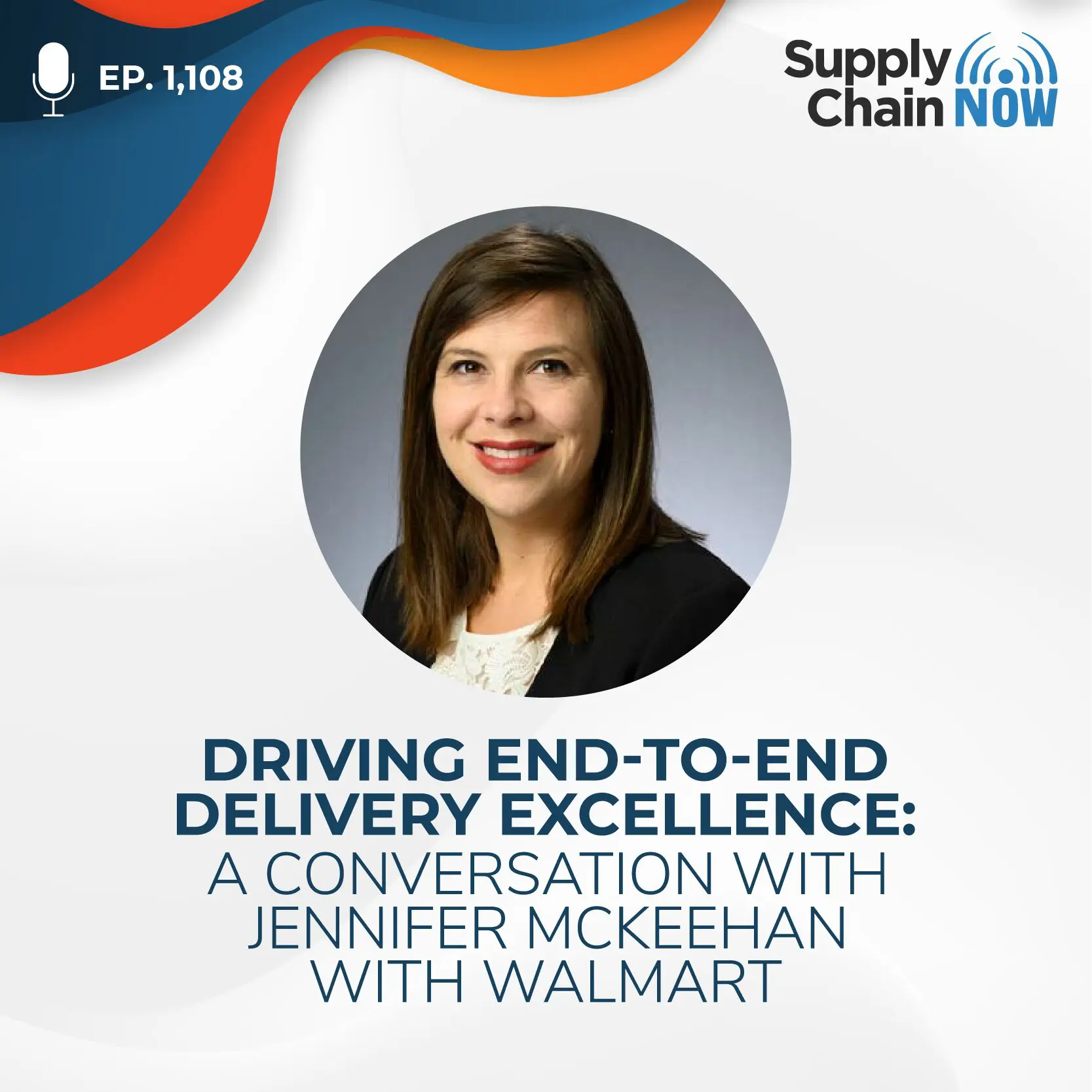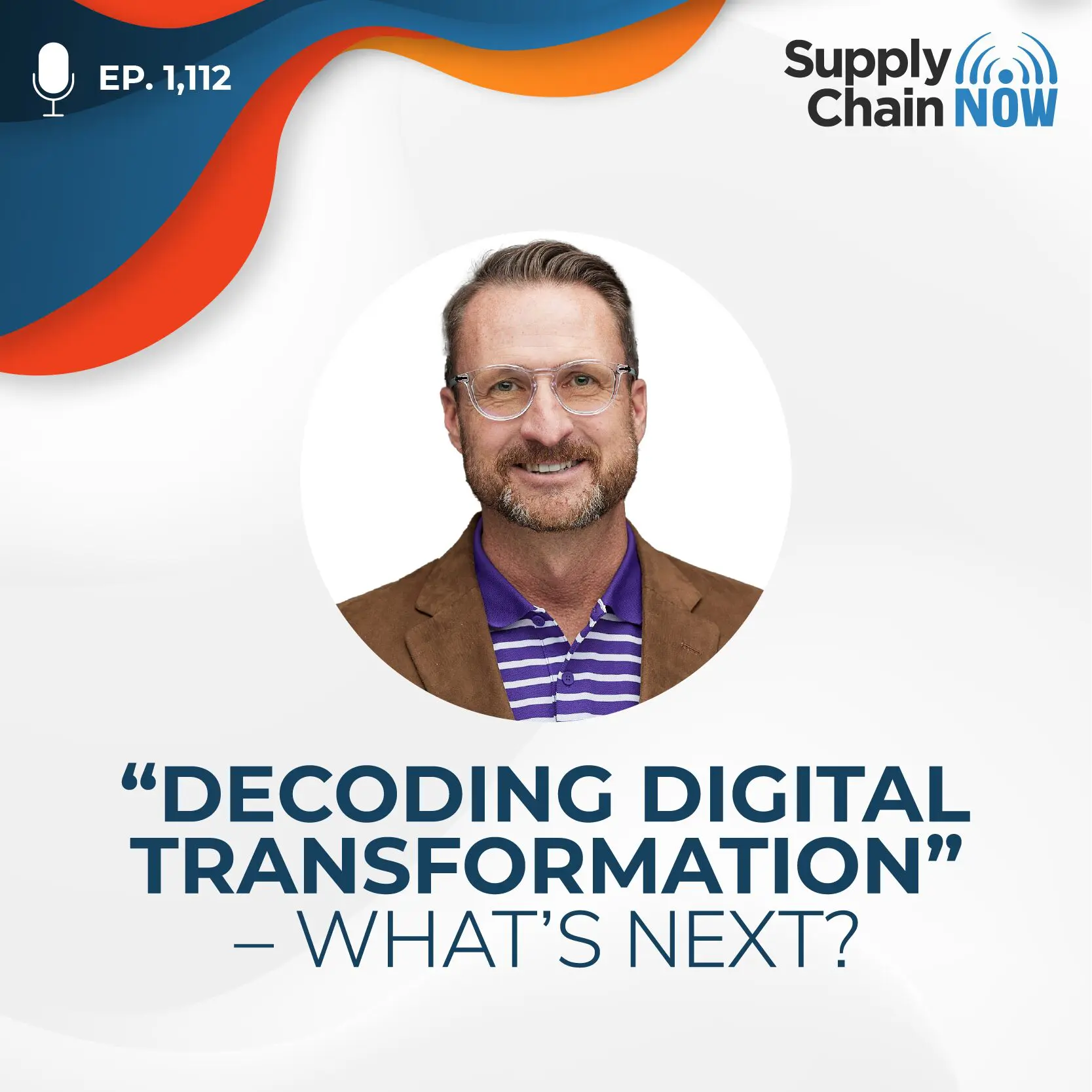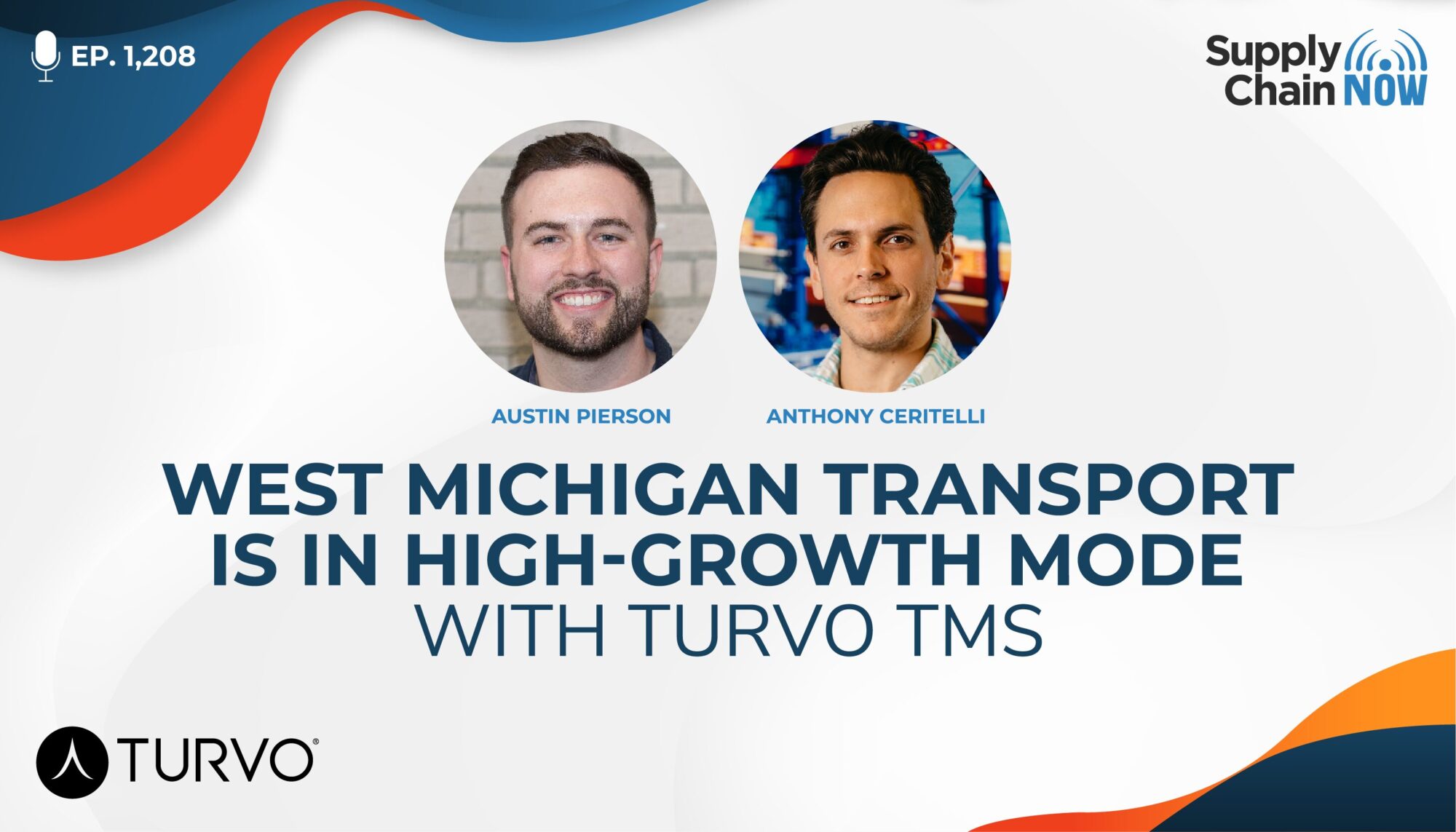
I think we understand that in order to get adoption of technology, especially for our drivers, it has to be easy to use.
-Austin Pierson
Episode Summary
The US transportation market is undergoing one of the most challenging periods in the past decade. According to Austin Pierson, Co-owner and Executive Vice President of Customer Sales at West Michigan Transport, revenue per load is down 25-30% across the board for upper brokerage.
However, that’s not to say that opportunities aren’t there for proactive sector players.
In this inspiring episode of Supply Chain Now, Turvo TMS’s Director of Customer Success Anthony Ceritelli joins Pierson and hosts Scott Luton and Greg White, to share their joined success story, highlighting how leveraging innovative and scalable technology in the right way can supercharge growth and performance despite difficult market conditions.
Together, the two business partners discuss:
· The role of automation and enhanced supply chain visibility.
· The elegance of simplicity when it comes to technology.
· How eliminating driver pain points can enhance worker happiness and efficiency.
· The importance of finding a true technology partner that understands your unique business needs.
Episode Transcript
Intro/Outro (00:04):
Welcome to Supply Chain Now, the voice of global supply chain. Supply Chain Now focuses on the best in the business for our worldwide audience, the people, the technologies, the best practices, and today’s critical issues, the challenges and opportunities. Stay tuned to hear from those making global business happen right here on Supply Chain Now.
Scott Luton (00:33):
Hey, hey. Good morning, good afternoon, good evening, wherever you are. Scott Luton and Greg White with you here on Supply Chain Now. Welcome to today’s live stream. Gregory, how are we doing today?
Greg White (00:43):
I’m doing quite well, Scott. How are you?
Scott Luton (00:45):
Wonderful, wonderful.
Greg White (00:47):
Feeling pretty bad for a good friend of mine who’s a Jacksonville fan, and of course, Trevor Lawrence, but I think he’s a tough kid.
Scott Luton (00:56):
So, we are jumping right into the NFL discussion today. So, if you missed that game last night —
Greg White (00:59):
I mean, we got to hope, right?
Scott Luton (01:01):
That’s right. Greg’s talking about a big injury, one of my favorite Clemson players, but we’re going to keep our fingers crossed. Hope he’s back. And Greg, I think we’re going to be joined by a couple of very passionate fellow NFL fans momentarily. And we’ll —
Greg White (01:13):
Indeed.
Scott Luton (01:15):
We might dab with a little bit of sports, but great story here today and discussion as we dive into the story of an organization that, despite one of the most challenging transportation markets in the last, I don’t know, a decade or so, they’ve been fighting a good fight and growing and thriving. And we’re going to be talking about a key component behind all that growth, which is innovative and scalable technology and little football. Greg should be a great show, huh?
Greg White (01:41):
Yes. We got to keep them off the football too much because they are, as you said, passionate fans. But I think that there’s probably some worthy football discussion. But yes, of course. This is a really fascinating situation, isn’t it? I mean, we’ve had some big economic news. I mean, mortgage rates went down, if you can believe that. People are expecting as many as four rate cuts from the Fed next year. Maybe we —
Scott Luton (02:05):
Keep that good news coming, Greg.
Greg White (02:07):
Yes, maybe we’ve beat inflation. I don’t know. We’ll see.
Scott Luton (02:13):
I like your healthy optimism and we’re going to dive more into that, I’m sure, and some upcoming buzzes. But today’s discussion and really a great story, folks, you’re going to really enjoy it. So, with all of that, we want to bring in our featured guests here today, Austin Pearson, co-owner and executive Vice President of Customer Sales with West Michigan Transport, and Anthony Ceritelli, director of customer Success with Turvo. Hey.
Scott Luton (02:40):
Hey, hey. Austin, how you doing?
Austin Pierson (02:42):
Good, how are you guys doing?
Scott Luton (02:44):
Great —
Austin Pierson (02:45):
Victory Tuesday.
Scott Luton (02:46):
That’s — victory Tuesday. So, Austin, folks, if you don’t know, Austin is a big Detroit Lions fan, longtime Detroit Lions fan. And then Anthony, how you doing?
Anthony Ceritelli (02:56):
I’m doing well. How are you?
Scott Luton (02:58):
Wonderful, wonderful. Really enjoyed our pre-show conversations. Anthony is a longtime Cowboys fan. And of course, if you all —
Greg White (03:05):
Oh, boy.
Scott Luton (03:05):
— us at all, Greg’s a big Kansas City Chiefs fan. So, folks, we’ve got NFL analogies, I’m sure plenty over the next hour. But Anthony and Austin and Greg, great to see you all here today. So, what goes with football like a good tasty adult beverage? So, that’s where we’re going to start.
Greg White (03:24):
There you go.
Scott Luton (03:24):
We’ll have little warm-up question here, right? So, folks, it’s a holiday and you don’t even know it because on this day, back in 1933, Amendment 21 of the U.S. Constitution, well that was repealed. That’s right. On December 5th, 1933, prohibition was ended and the good times commenced. So, today is celebrated officially as National Repeal Day. I’m not going to ask what was the Greg’s glass there, but —
Greg White (03:50):
Water.
Scott Luton (03:51):
- All right.
Greg White (03:51):
Unfortunately.
Scott Luton (03:52):
Fair enough. I also hope it’s going to be exciting. So, with that as a backdrop, folks, and I want to start with Austin. We’re going to go around the horn. What would be your go-to adult beverage to celebrate this momentous holiday? Austin?
Austin Pierson (04:03):
I’d say, Hendricks and soda, I’m a big gin guy.
Scott Luton (04:06):
- Hendricks and soda. OK. Anthony, how about you?
Anthony Ceritelli (04:10):
Man, I spend a lot of time on the road and I — it’s a lot of long meetings. And I got to tell you, I don’t know where I picked this up because it’s going to sound like I’m fancier than I am, but after a long day of meetings nothing hits the spot like two — it’s got to be two dirty martinis.
Greg White (04:26):
Two.
Scott Luton (04:27):
- Vodka or gin martinis.
Anthony Ceritelli (04:30):
Typically, I go vodka. I just — it’s something about — it’s salty, it’s strong, and it just — it’s what you need after a long day.
Scott Luton (04:37):
- I like it, Anthony. I like it. I’m tracking with you.
Scott Luton (04:41):
OK, so Greg, we’ve got a gin lover, a vodka lover. What about you?
Greg White (04:46):
Well, I mean if we talk about what we love, I would have to say it would be probably Macallan 23. Neat. But I think the most appropriate celebratory would be the Moonshine we found under the false floor in my great grandparents’ house when we were moving them out when I was a kid. So —
Scott Luton (05:05):
Wow. There’s lots of stories there, Greg.
Greg White (05:08):
Yes.
Scott Luton (05:09):
Stories they —
Greg White (05:10):
Yes, I doubt there’s any of that left. I’m not sure that Moonshine gets better with age. I don’t know the answer to that.
Scott Luton (05:17):
We’ll have to pick up the phone and give Tommy Townsend a ring. Georgia —
Greg White (05:20):
There you go.
Scott Luton (05:21):
— Moonshine Distillery.
Greg White (05:22):
There it begins.
Scott Luton (05:23):
That’s right. All right. So, Greg and Anthony and Austin, I’d love to get some of the stories related to those adult beverages, but hey, for now we’re going to move forward. We’ve got a lot to get into here today.
Scott Luton (05:32):
And hey, we got Eugene out there. Good morning. Great to have you. Kendall out there via LinkedIn. And Justin, he’s a big Martinis fan as well. Anthony, Daryl says, LA Familia Reserva tequila. OK, Daryl, love it. Randy from the upstate. Ashley, nice, crisp Coke Zero. All right.
Greg White (05:51):
There we go.
Scott Luton (05:52):
A lot of good stuff there. All right. So, what we want to do, Anthony, Austin and Greg, I want to start by setting the stage a bit, offering up some context. And Austin, you all have been rocking and rolling at West Michigan Transport. Tell us about the business and your role there.
Austin Pierson (06:07):
So, West Michigan Transport, you know, based out of Holland, Michigan here around the lake. Been here really my whole life. I was in skip, but we’ve just opened up the Grand Rapids office here about September. So, yes, about three months ago. Crazy and it’s been flying by. So, that’s been great. 10,000 square foot office. We’ve only got 14. I’m actually out here today, so — at school, I’m typically in Holland more. But yes, you know, it’s been great.
Austin Pierson (06:29):
Yes, I’m co-owner and executive vice president for sales. And obviously I’m heavily involved in our sales program and training, you know, a lot of our new employees and customer. Facing big decision maker on a lot of the technology. I mean, I think what wakes — what makes us strive is being — having the relationships with our customers and our carriers, but I mean we definitely need to stay ahead of the technology and where everything’s going. So, at this same time last year we were only at 20 people and we’re actually over 40. We’ve got another four people coming on in January. So, yes, it’s been exciting.
Scott Luton (07:02):
That is outstanding, that growth. And you’re in — so you’re in Grand Rapids now, is that right, Austin?
Austin Pierson (07:07):
Yes, yes. I can switch around. I can show you.
Greg White (07:11):
Let’s get the weather report most importantly.
Scott Luton (07:13):
That’s right.
Austin Pierson (07:14):
It’s not snowing. I mean, that’s —
Greg White (07:17):
He knows what everybody means when they say weather report in Grand Rapids.
Scott Luton (07:18):
Well, and lunchtime is approaching. So, I’m sure you all got some delicious grub there. Hometown grub in Grand Rapids. We’ll have to get a report after the show.
Scott Luton (07:29):
All right. So, Anthony, we’ve enjoyed lots of shows with you and the Turvo team. And I really — I love hearing Austin’s some of the themes that relate to their success, focus on the customer, those relationships on the — really, the ecosystem. And you all have a lot in common there at Turvo. So, tell us for the handful of folks that may not have caught those earlier shows, tell us about Turvo and your role.
Anthony Ceritelli (07:49):
Yes, Turvo is a collaborative supply chain platform. So, really, we’re providing end-to-end visibility, collaboration and execution. Everything from appointment scheduling to orders inventory management, to shipments, transportation, visibility and execution. We’re going to focus more today on the TMS portion of our suite of products.
Anthony Ceritelli (08:10):
My role as director of customer success, I actually — I think that I have one of the most fun jobs at the — maybe in the whole country, I don’t know. But I get to spend my time working with our customers to kind of put together a strategic map of where did we go from here? You got live, you went through the pains of implementing a new TMS. How do we align our businesses to deliver the outcomes that are going to drive ROI for you?
Scott Luton (08:35):
I love that Anthony and Austin. And, Greg, as we continue foreshadowing conversation and the story, we really enjoyed these conversations and just love where their head — their heads are. The focus on what we could do for our customers. What can we do for our drivers? What can we do to scale business? Your thoughts, Greg?
Greg White (08:51):
Yes, I mean it is an ecosystem, right? So, you have to look at it holistically and solve combinatorially, I love that word, but I mean everything is interdependent, right? Just like an ecosystem. So, you know, the butterfly effect is in full force, as I like to say in supply chain. So, these sort of far-reaching type solutions that allow you to touch every aspect of your supply chain are so important. Because you can’t do it inside your own four walls anymore, right?
Scott Luton (09:22):
That is right. Combinatorially, wow, that is a word. And I’m not sure how I said it right, but we’re going to go with it.
Greg White (09:28):
I think you got it. I’m going to give you credit.
Scott Luton (09:30):
OK, thank you. I need all the credit we can get. Hey, Randy talks about Mount Gay Rum from Barbados. I’ve had that, that is delicious. And Brooks also likes a good scotch here, Greg. So, we’ll have to have some conversations after today’s show.
Anthony Ceritelli (09:43):
That sounds good.
Scott Luton (09:44):
Yes, doesn’t it?
Anthony Ceritelli (09:46):
Barbados? Where do I buy that?
Scott Luton (09:47):
Man, well —
Greg White (09:48):
Anywhere. I mean, I’m — not that I buy a lot of it.
Scott Luton (09:53):
All right. So, Randy, tell us where your favorite place is to get good Mount Gay Rum.
Scott Luton (09:57):
- So, Austin, let’s continue leaning into the fascinating store at West Michigan Transport. Congrats again on all the growth. I love that the 20 new team members that will have some awesome opportunities as you all continue to grow. So, you and the leadership team, as we’ve learned, leaned heavily, obviously, into growth mode, right? And it’s paid off handsomely even in these most challenging times in transportation market that we all know and have been experiencing and analyzing, you name it.
Scott Luton (10:25):
We’re going to get to a lot more about that in a second. But that key eureka moment that you and your leadership team had, that your previous TMS as Anthony kind of mentioned, it wasn’t really supporting your growth. And in fact, it might’ve been more a constraint. So, tell us about that moment of truth that you all had.
Austin Pierson (10:42):
Yes, I think that — I mean, originally it even started when I first started seven years ago almost, you know. I came from a bigger brokerage and obviously wanted to grow that you know. And it was a glorified Excel spreadsheet. We did, you know, a couple years later, we go to something a little more advanced, but you know, it was — we didn’t have, like, a mobile app for our operations guys. So, everyone had to bring their laptop home. It was something that they were always kind of strapped to that. The data was manual.
Austin Pierson (11:09):
There’s so many decisions that we have to make, you know, whether it’s account reviews or even lane data, like, what’s our top lanes, or you know, for our customers and being able to sell that to a prospect? But even just making operations more efficient and how many loads an operations guy is building in a day or in a week or in a month? And where we can, maybe, the big thing is, all right, we’re — how many loads per head, per day is kind of what we were focusing on.
Scott Luton (11:34):
Right.
Austin Pierson (11:35):
And then really even just — there was really lack of a training program in customer service. I mean, we never really had a point of contact that — now, I’ve got Anthony and shout out to Gil. I mean, even — there’s been like a few times where even we’ve hopped on the call with Billy. So, shout out Billy, the CEO of Turvo and, you know, I mean, to have that relationship and a true partner at TMS is — I mean, yes, I can’t speak highly enough.
Scott Luton (11:58):
- That’s quite a list. So, we’re going to dive a little more into some of those features which help you build competitive advantages in just a second. But, Anthony, I’m going to bring you in and I’ll Greg’s take here. Anthony, when you hear some of those constraints that Austin mentioned, you know, from the glorified Excel spreadsheet to the manual data, to even the lack of training, right. Where does that take your mindset there? Where does that take your head?
Anthony Ceritelli (12:22):
Well, you know, I — from the Turvo side of things, we have a world-class product but our strategy is pretty simple. We — we’re customer obsessed, right? Customer’s always first, and that’s why our CEO’s on calls with customers. We’re focused on building a world-class product and continuing to enhance that. Absolutely.
Anthony Ceritelli (12:41):
But, you know, the thing that I really, really like about the West Michigan story is there was, like, a conscious decision to say, all right, let’s go grow, and let’s go be really strategic about the technology that we’re going to procure to support that. And what we’re doing differently with Turvo is that collaboration with execution that a lot of the market really isn’t ready for yet.
Anthony Ceritelli (13:04):
And I — there’s a story that I’ve hoped we find time for Austin to tell, where they were kind of sitting down and they said, all right, now let’s go. And it just so happens that they’re growing through a transportation market that’s so bad that Trevor Lawrence can’t even get a ride to the locker room.
Scott Luton (13:20):
No, Anthony, that was good. All right. So, Greg —
Anthony Ceritelli (13:24):
Is he OK? Is there an update on T.V.
Greg White (13:27):
I don’t know. We didn’t have —
Anthony Ceritelli (13:28):
You’re the Clemson guys, right?
Greg White (13:30):
We need to have Catherine look into that.
Scott Luton (13:32):
Right.
Greg White (13:33):
Trevor Lawrence update, please.
Scott Luton (13:34):
Thank you. We got our sources out there. We’re going to get an update. But hey — and we will definitely get to that story in just a second, Anthony. Greg, when we hear — when you hear those constraints, what West Michigan Transport was fighting through and continue to fight through and win — winning, and then, of course, what Anthony and Turvo are committed to, what’s your thoughts there, Greg?
Greg White (13:53):
I think it takes a really conscious effort and I think the admirable part is the decision by Justin — Austin and his colleagues to consciously and intentionally grow the system and then — or the company and then to recognize that it takes a commitment to technology and process and people to do that, right? And we’re talking to them in their new office. So, I guess it seems to be working out pretty good.
Greg White (14:19):
But I think that’s critical, right? Is so many companies, when I — when, Austin, you said that, I was thinking so many companies they get in their own way. It’s more than their technology, it’s them. And the failure to recognize that things have to change if you want to grow, right? Over this course of a career or over the course of a business growth, you hit these ceilings and you have to crash through those at various times. And it takes intentional effort and a recognition by management that something needs to change in order to get us there. So, I think that’s a really, really mature approach and admirable, one, a lot of companies should mimic.
Scott Luton (14:57):
Yes, and be bold and not fearful of taking that action, Greg, great point.
Greg White (15:02):
Of making that one person in that dark corner that doesn’t want to change from their spreadsheet. Look, everyone’s smiling, everyone knows who that person is in their respect —
Austin Pierson (15:10):
It was like a cold tape [phonetic] a little bit. You know, I mean, it dig into the store that Anthony wants me to, but like we weren’t really intentionally trying to grow. I mean we kept adding just, I mean, awesome members to our team. I mean, we just — we grew organically between just referrals from our customers. I mean even just drivers and carriers because they want to work with us, you know, we pay carriers a lot faster than your typical broker, you know, your brokerage. And you know, that’s — we’re just, OK. You know, let’s try to actually go grow this thing and, you know, we needed to get a TMS that’s going to be able to adapt and be able to link up with other technologies as well that we’ve invested in as well.
Scott Luton (15:48):
Excellent point. We should have — wish we had cameras around the room as you all getting through that process there. All right. So, where we want to go next, Austin, Anthony, and Greg, I want to talk a little bit more about features. And you’ve already kind of spoken some of those, but I want to make sure we’ve got all those out on the table, and then we’re going to talk more about how they are blasting into true competitive advantages, right?
Scott Luton (16:06):
But first, I got Muhammad. I’m going to celebrate. Muhammad says, combinatorially, I can’t even spell it correctly. Well try to say it with me, Muhammad. It is very challenging. I’ll leave those big words to Greg here today. And also, Randy says, Total Wine and More in Greenville, South Carolina for Mount Gay Rum.
Anthony Ceritelli (16:23):
Hidden gem.
Scott Luton (16:24):
There you go.
Greg White (16:25):
There you go.
Scott Luton (16:25):
Hidden gem. All right. So, let’s keep driving with the story. So, let’s talk — we’ve already touched on constraints and at the same time, Austin, you kind of touched on some of the TMS features you all were looking for. But what — you want to add anything else to that list that you’re working for in terms of what your team determined you needed so that you can scale and then meet and surpass your accelerated three-year growth plan at West Michigan Transport. What else — when it comes to features, what else was there?
Austin Pierson (16:52):
I mean, I think the trade program that Turvo offered was excellent. We’ve kind of make it — WMTs our, you know, our own. But I mean you compare Turvo for me to, like, the iPhone, right? Like, I mean, there are — you know, you pick up an iPhone, I mean, there’s not really a how to. I mean, there is — there’s some classes if you really want to go to the Apple store. But, you know, if you want to figure out how to do something like on Turvo, I mean, you can figure it out. So, same thing with an iPhone, right? Like, you pick up an iPhone and you can figure out, I mean it’s very easy to walk through it, you know. And so, it’s — that’s really been a big thing for us.
Scott Luton (17:24):
Intuitive and easy to use, Austin, is what I’m hearing, right?
Austin Pierson (17:26):
Yes. So — I mean, like, we just brought a sales class out, seven sales reps, you know. And I think to be able to speed up that training and to — you know, we want to make some of these new reps that haven’t been to logistics for, I mean, you’ll feel like a pro within the first three, four weeks. You know, I mean obviously there’s some things that they’ve run into, and so commodities are things that they never know how to ship. And there’s some things that, you know, might need to be specialized, but I think that was a, you know, really big thing for us.
Scott Luton (17:53):
Outstanding. All right. So, Greg being the technologist and the serial founder in the tech space, something — you know, technology platforms that are truly easy to use that will help folks actually, get this, use the platforms, right? Embrace it. Adoption. That’s a really important thing, right, Greg?
Greg White (18:12):
Technology is a tool for people to get done. So, that’s all technology needs to do. And make it — and the easier you make it, the better. And I think we always called it the elegance of simplicity because it’s — it takes so much effort to put so much work behind the screens and behind the scenes and in the code so that it is simple for the user to use and to accomplish their job. And one of the things you have to recognize is a technology provider.
Greg White (18:43):
If people don’t want to use technology, they want to get the benefits of technology, right? And the less using of it they have to do to get the benefits, the better off they are. Technology should never be a hurdle or a hindrance, right? It should always be an accelerant.
Scott Luton (18:58):
Excellent. Man, good stuff there. All right. So, Anthony, my hunch is that ease to use which drives effective and full adoption. I bet you all hear that from a lot of folks out there you’re working with, huh?
Anthony Ceritelli (19:11):
We do. And I think I cut out for a little bit there so I didn’t hear the full question.
Scott Luton (19:16):
Yes. So, Austin was kind of weighing in on some of the other features, right? We were kind of comparing and contrasting that — both the constraints of the previous platform and then some of the features they were looking for, as well as what Turvo has delivered before we get into some of the competitive advantages there. And one of the things Austin pointed out was just how intuitive the platform is, and how that’s helped not only the current team members use it, but also as they hire new team members, how that helps onboarding and helps them, you know, lessen that learning curve.
Scott Luton (19:47):
So, Anthony, that’s kind of — I bet you all hear a lot of that out there in the marketplace, huh?
Anthony Ceritelli (19:50):
We do. And I think, Greg, you said it really well, that technology should always be an accelerant. And when I think about how we look at success as business partners with our customers, I always try to keep things pretty simple, and they usually fall into one of three things, right? And it’s improving retention. That could be customer retention, carrier retention, employee retention. That’s really important in this market. It’s going to increase scaler efficiency that comes with automating workflows or managing and reducing costs.
Anthony Ceritelli (20:19):
And then, you know, what I love about Turvo is that it becomes part of your go-to-market. I mean, our customers that are successful, Turvo knows — Turvo is a revenue driver for those customers. And the beauty of it is, I called it a platform and it is a platform. We have an open API and it can be modular in the sense that if there’s something that you’ve decided to build or you want to use outside of Turvo, you can integrate and bring those things right into the platform to accelerate your whole tech stack.
Scott Luton (20:49):
So, Anthony, I appreciate that exactly. You must have a crystal ball and it must be working because that’s where I’m headed next with some of those competitive advantages you laid out there. Starting with that last one. It helps — it is part of your go-to market strategy for organizations out there that are leveraging it like Austin and team are.
Scott Luton (21:05):
So, Austin back to you. When you think of how as you all tackled the constraints, you’ve partnered with Turvo. You — for certain features, you’ve seen those features and benefits that you’ve already spoken to, start to be leveraged. You know, as Anthony was laying out, some of those competitive advantages there. Speak to what you’ve seen and what your team have begun to realize there at West Michigan Transport.
Austin Pierson (21:27):
Yes. I mean, a couple I want to speak on, I guess. You know, I think the — one of the big ones is even just the Turvo Driver tracking app. We’ve dealt with a lot of other tracking applications and you know it’s one — we’ve got a lot of feedback from our drivers. It’s one of the easiest to be able to onboard if they’ve never (INAUDIBLE). Like, I know it. I’ve dealt with other ones as far as just getting connected, it’s, you know, a lot easier for drivers.
Austin Pierson (21:50):
And big thing we’re pushing is to be — get all of our loads on tracking because if we can get all of our loads on tracking, it’s going to be safer for our drivers, that’s one thing. One big thing we’re pushing is to obviously have more safety for our drivers and we don’t have to call them as much to where they have to even worry about that, right? Like they could send it, forget it. And not only is that going to, you know, be safer for them, but it’s going to make our guys efficient.
Austin Pierson (22:10):
It’s going to be a track and trace team where then I can have exceptions where if they’re running behind, I mean this is all going to be automated. Where I’m not going to have as big of a track and trace team to — I mean, it’s going to be completely automated because of the Turvo Driver tracking app and then the exceptions that Turvo has built in with that as well.
Scott Luton (22:30):
Yes, outstanding. All right. So, Greg, what I heard there, especially in what Austin was saying, to less manual work more automation. The visibility across the business, certainly with load visibility. And we got to take care of the drivers. I love how he mentioned the driver experience from a safety and — both in a safety and efficiency and being successful standpoint. Your thoughts, Greg?
Greg White (22:53):
Yes, I mean, I — you’ve got to know what your constituency is, right, when you implement a new technology. And in this case at least that feature, it’s all about the drivers, right? It’s about helping them be more efficient, helping them be safer, helping them, you know, make more money or spend their time more effectively. All of those things.
Greg White (23:12):
I think those are great simple problems for a good size constituency if you have a transportation company. And that’s how you determine how to prioritize your technology. Is a simple problem that everyone feels the pain or a significant number of your frontline on a particular process, feel the pain, and wants solve. And that’s a really, really great way to approach it. But obviously it’s a little bit more altruistic than just solving the problem. It’s recognizing, as Austin said, it’s recognizing that the drivers are the front line, they are the image and the identity of the company. And of course, they take the greatest risk out there and they carry millions, hundreds of millions, billions of dollars-worth freight out there, so, yes.
Austin Pierson (23:58):
Yes, they represent us and, you know, they represent our customers. I mean, at the end of the day, they’re an arm — I mean, obviously, we’re in arm of our customers, but they’re in arm of our customers, you know. The big thing is, you know, if we can get some of the same drivers on the same loads for our customers, I mean, it’s — to be able to have that experience for our customers, vendors or our customers’ customer at that point. I mean that’s — to get Craig tickets, Steve, that comes constantly. Same guy that — I mean, you get unloaded faster. You build those relationships. You’re in and out, I mean, it’s pleasant forever.
Greg White (24:26):
KYD, know your driver. We need a policy like that.
Austin Pierson (24:30):
They’re as important. I mean, who doesn’t —
Greg White (24:31):
More important than — OK. You think about it, just about your UPS driver, right? Everybody, (INAUDIBLE), maybe even sends them a Christmas card. And yes, if you’re a delivery driver of goods, knowing that you can count on that person and knowing that person and having a sort of affinity for them is really valuable. So, if you can facilitate that, especially in this market, that’s really powerful.
Austin Pierson (24:53):
Well, I think Scott, you were asking kind of about competitive advantages. And one thing that maybe we don’t talk about enough as an organization, Turvo-wise, our design and experience really is one of our competitive advantages. And I think we understand that in order to get adoption of technology, it has to be easy to use, especially for a driver. I mean, how many apps does a driver have to use today? And it’s really hard to get them to open another one, but you know we see a ton of success with our customers leveraging the app that’s just native to our TMS. I think 90-95% of the shipments is kind of best in class for — I mean, that’s pretty incredible.
Scott Luton (25:35):
Yes, it is. I want to point out one other thing that I heard, Austin, you mentioned near the beginning of our conversation here today. So, in a second, we’re going to get into the — one of our favorite topics, just sheer outcomes and results. We’re going to get there in just a second, right. I think it’s important for folks.
Scott Luton (25:51):
But I want to go back to something you mentioned on the front end, Austin, because I think it’s fair to say in the — when it comes to technology, you go through selection — and I’m simplifying, you go through selection, you buy it, you get it implemented, and then you’re on your own. And that aftercare is so important as we continue to fully utilize it and really drive the return on investment. And Austin, I think you pointed out that ongoing training that Anthony and Turvo team offers your growing team and how important that is, right? Speak to that for a second, Austin.
Austin Pierson (26:23):
Yes. I mean, it’s something that, like — I mean, every single week, so I have a weekly meeting with our customers sales rep Gil. Again, shout out to Gil, he’s been excellent. I mean, to help us be able to build reports to — I mean, I have a parking lot of questions. When you first go through a TMS change, it’s insane.
Austin Pierson (26:40):
So, the — actually make that change, and then — within over a six-week period, that six to eight-week period, I mean we had — and shout out to Kara, she was awesome for onboarding. But, I mean, we probably had 80 to 120 questions that we just, hey, how do you do this? Is there a certain way you can do this? And that’s been awesome to be able to get instant feedback and then be like, no, that’s actually a good idea. Let’s put that as an enhancement. And we’ve already seen some enhancements for Q4 and then going into Q1 of next year. It means it’s awesome to be able to have some of the — a partner that we can work with and then to even look at, like, all the enhancements that we can see, like, for Q1, Q2 of next year that we’re already excited that are going to be coming up.
Scott Luton (27:20):
Love that. And Greg, we have had — we’ve touched on this as Anthony and some of his colleagues have joined us on previous shows. I think they call it Turvo University, and I sure hope they grade on a curve for slower students like me that might be enrolled. But, Greg, how important that aftercare program? I mean, you’ve seen — you’ve been a part of thousands of implementations, that’s really important, isn’t it?
Greg White (27:40):
Yes, unquestionably. It’s inevitable that somebody is going to get stuck or they’re going to need a feature or they don’t understand how to operate a feature, even as simple as they can be, right? So, having someone to help them understand or they face a business situation that they haven’t faced before. And having people, like on Anthony’s team, that can identify, hey, we’ve been through that with other customers or maybe even been through it in their own career or whatever, here’s what you can do there or help.
Greg White (28:08):
You know, sometimes when you talk about aftercare, it’s not about broken technology. It’s really about how to apply the technology to a specific business situation or how to utilize the technology in a new business situation or something like that. So, having that kind of breadth of knowledge is really incredibly valuable. It’s really what keeps people on your technology, right?
Scott Luton (28:30):
Love that, Greg. Great points there.
Scott Luton (28:33):
Anthony, I’m going to give you the final word because I know this has been a popular aspect of how you all do business. It’s got to be pretty fulfilling to be there. And it really, I think, from what — as I’ve learned more about it the last couple of years, you know, you build these long-term relationships, and the businesses, all the — everyone’s business changes, to be there and to help them through those changes. What they call it over at Gartner, Greg, through the terms? Anthony, I bet you all get a lot of great feedback on that component of how you all do business, huh?
Anthony Ceritelli (29:00):
We do. And you know, we’ve put a lot of time and energy into building our customer success program. And one of the things that we focus on is building customer success plans. And those aren’t things that just happened once and they live forever. We revisit those plans and we continued on and we really look at our relationships with customers as partners. And I tell these customers all the time, Turvo wins what you win. So, we want to align everything that we’re doing to what’s going to help your business because that helps.
Scott Luton (29:31):
Does Anthony and Turvo win when the Cowboys win? That’s the billion dollar question, Anthony.
Anthony Ceritelli (29:36):
Well, the Cowboys winning — smoke [phonetic] has nothing to do with the success of Turvo because you guys know what the Cowboys tend to do —
Greg White (29:43):
Well, look harder. They’re looking pretty good though, I got to tell you. It’s Cowboys, Eagles this week, isn’t it?
Austin Pierson (29:49):
It is. It is.
Scott Luton (29:50):
Oh, that should be a good game. That’s a good game.
(CROSSTALK)
Scott Luton (29:53):
Oh, did someone say, give us a scoreboard?
Anthony Ceritelli (29:55):
A score prediction.
Greg White (29:57):
Whoa.
Anthony Ceritelli (29:57):
I’m going 31-20 Cowboys. It’s a lot.
Greg White (30:03):
OK.
Anthony Ceritelli (29:59):
31-20 Cowboys.
(CROSSTALK)
Austin Pierson (30:08):
They’ve been on it for the number one seat, so, it’s not high, but hey, my hopes are still up. I’m a Cowboy fan just this weekend.
Anthony Ceritelli (30:15):
I — we have a lot of folks at Turvo in Dallas. I feel like I am just setting myself up to get crushed.
Scott Luton (30:21):
- Hey, you all give us your predictions out there, but this is a great segue. So, thank you for asking scoreboard, because that — when you think of scoreboard, you think of outcomes and the sheer results. And that’s where we’re going to go next with Austin. So, when you think of that, when you think about what all of the features and the relationship and the technology itself and how you all have been able to really leverage all of that, tell us what can you share about any outcomes and results that this partnership has helped deliver for West Michigan Transport?
Austin Pierson (30:52):
Yes, I think one thing we actually didn’t touch on was the collaboration, the relationship side of things. I mean, Turvo has one line of code. So, the — we didn’t have any customers on each set of EDI. I didn’t have a tenant where customers could log in and look at their shipments. I mean, there’s so many things I could sit here and talk about with other features, but you know, even for our carriers, right, like it’s — like with one click, they can book a load and they can actually get into our system now and see all of our loads that we have. And I think that — that’s, you know, for us making us way more efficient.
Austin Pierson (31:25):
You know, if I can get set up with all of our customers on EDI instead of being from seven loads per hat, per day on a — if we’re talking efficiency, I’m looking at 10 to probably even 15 loads per head, per day because my guys aren’t building any loads. They all — they’re not going to necessarily be tracking and tracing. We just send the Turvo trucker — tracking app. It’s tracked. It’s traced. I mean, obviously we’ll handle the hiccups and speed bumps. It’s logistics. I have way too many gray hairs at this point.
Austin Pierson (31:51):
So, I mean to — the big thing is, yes, you know, it’s making us efficient and being able to give that not only to it, like I said to our customers, but our carriers. So, I mean, the routing guides we’ve set up. And that’s another thing we haven’t really talked about where, you know, I’ve got a dedicated lane, you know, from Michigan to Florida that’s five times a week. It’s like I’ve got a routing guide where I can put five carriers from price A to B and then your A to D. I’ve got four carriers on it. And then if none of the carriers want it, then they will post it up automatically. I mean, it’s — instead of living in four or five different screens, I’m living in one.
Scott Luton (32:26):
And that — what a great visual there. I think everyone can relate to that. All right. Simplifying, getting down to one screen that you can put your attention on. And the other thing, going back to your first point — and, Greg, I’m get you to weigh in as well. What I hear you say, Austin, is it allows you to operate with much more efficiency so you can dedicate more time to growing the business, which is really important, right? All right. Greg, what did you hear —
Greg White (32:50):
Well, that’s really the — I mean, that’s — one of the great levers of technology is allowing people to cease to do the mundane, right? The repetitive. Sometimes even very, very important tasks, but tasks that if, you know, if it fits the rules nobody needs to look at, right? And only dealing with exceptional circumstances. When you can do that is when you really can free your mind and your effort and time into improving the business or exploring more opportunities and that sort of thing. And that really — it’s so satisfying for the user in that case as well, right?
Greg White (33:29):
Because people get, as Austin was talking about, nobody wants to have to do all of that administrative stuff. And if it can be done by technology, it should be. And more and more it is being, and we’re seeing what that does for people’s minds and their health and all sorts of things, and of course, their job effectiveness and job satisfaction and ultimately in an environment where we’ve got incredibly tight labor availability, and particularly in supply chain, and particularly in this role, that’s a really, really important feature to create job satisfaction, helps create stability and people stick around. Stick-roundedness, let’s call it that.
Anthony Ceritelli (34:10):
How do you spell that?
Greg White (34:13):
Yes, yes. I’m sorry, Muhammad.
Scott Luton (34:15):
That’s right.
Anthony Ceritelli (34:16):
I think it’s a big —
Greg White (34:17):
Stick-roundness, how do you spell that?
Austin Pierson (34:18):
You have more time to build relationships. I mean, go to our slogan, building relationships for trust, one load at a time. But the — it was mine. I guess I did come up with that. But no, I mean, it’s — you got more time to build relationships with those dispatchers and your customers and being able to figure out what their pain points are and how we can figure it out.
Scott Luton (34:37):
And that’s critical. Anthony, go ahead.
Anthony Ceritelli (34:40):
Yes. Well, we’re talking of just about outcomes and how we measure success, was it last week that you told me it was a record week?
Austin Pierson (34:47):
Yes, so last week was Thanksgiving, so it was the week before. So, most customers in a week, most loads we’ve ever put up in a week. November was the biggest month that we’ve had for customers and load toll [phonetic]. And it was two less ship days then because we have got, obviously, there’s two less ship days than your typical month with the holidays. So, it’s been awesome. I mean, we’re controlling what we can control and that’s the customers and the low count. You know what I mean? Obviously, we’re in a down market, right? Like, it’s there’s — you can’t control certain parts. I mean, the average, you know, revenue per load is probably down 25 to 30% across the board for upper brokerage, right? So, we’re controlling and maintaining the relationships we have that are — like I said, between our carriers and our customers.
Scott Luton (35:28):
Anthony, that’s a great addition. Anything else? So, Anthony, I’ll get you the last comment here when we think about these outcomes and results, you know, to try to simplify all that Austin just shared there. It helps you hire and onboard, right, and getting — return on that investment. It helps you execute and execute on more volume. And then, of course, it helps you grow and add significant volume there. And over the — and kind of to add Austin’s last point there, kind of, over the top. Overarching over the top is building and having some time to invest in the relationships, which is so critical to always doing business and growing business.
Scott Luton (36:04):
So, Anthony, what would you add your final word on those outcomes and results that are making up a big part of the story at West Michigan Transport?
Anthony Ceritelli (36:11):
I’m going to reiterate a little bit what I said earlier, but look, the customer journey with Turvo, it doesn’t end. It’s something that it changes every year. It changes every 12 to 18 months. We focus on different things. But it’s all about business outcomes and it’s about improving retention, increasing your scale and efficiency, and then that kind of promised land is where Turvo is driving the expansion of your business. But that’s an ongoing thing and it never stops and it’s a partnership all the way through till the end. And I’m excited to have West Michigan be a partner with us and we’re still in the early stages of our journey, but we’re already seeing wins. And those tidbits at Austin shared are — that’s the fun of what we do. It’s music to my ears and it’s awesome. And congrats to you Austin and the West Michigan team.
Austin Pierson (36:56):
Thanks.
Scott Luton (36:57):
Absolutely.
Anthony Ceritelli (36:57):
We’ll keep giving the updates. So, I can send you a record week.
Scott Luton (36:59):
Can’t stop, won’t stop. Love it. All right. So. stay tuned folks. We’re going to get Greg’s patenting key takeaway in a few minutes. We’re going to make sure, folks, you all know how to connect with Austin and Anthony in just a second. But hey, speaking of updates, Austin, since you’re showing lots of care for my Clemson Tiger, Trevor Lawrence, we’re being told only they’re claiming a sprained ankle. Of course, it was stepped on by a teammate in an innocuous play as they’re calling it. He’s still undergoing further tests. So, how about that? Ask and you shall receive. Thank you, Amanda and Catherine for helping make things happen.
Scott Luton (37:30):
Also, Sky’s [phonetic] helping us spell stick-roundedness. Thank you, Sky. I appreciate that. Our experts are torn. Bridget says. 34-28 Eagles. Alonzo says. 27-24 Cowboys. And we’ve got a couple of questions. Hopefully, you all have a chance. I’m not sure who this user is, but we’ll see if we can get Anthony connected with a few folks out there after today’s show, right? I know we can’t hit everybody’s comments and questions.
Scott Luton (37:55):
- So, Greg, we still got a little more to go before we wrap up here today. And Greg, I’m going to give you a chance. This is — when I hear stories like this, right, especially in this environment that we’re seeing. I mean, these are things that many other folks can take advantage of, right? Put it in headlock and go out there and fight the good fight, Greg. I mean, that’s — to me, that’s a big reason why we have these conversations.
Greg White (38:19):
Yes, it is. And I think, you know, the lesson here, I mean a good part of the lesson is find someone you can partner with. Find a technology provider that you can partner with, who will make the commitment that Anthony and the team at Turvo has made to West Michigan, and embrace that and engage that and be a good partner for them as well, because it — that is so critical when companies get together like that and they understand one another and they build a rapport, and they build understanding of each other’s business. What they can and can’t do, what they want to and don’t want to do, right? That is — that’s a really, really important thing.
Greg White (38:56):
And when you are willing to build that relationship with a technology or service provider, it is so incredibly valuable. Because they want, like Anthony has showed here today, they really want to help you be better and it helps them be better as a business. So, don’t just do what I call the technology paradox, which is buy technology and go, OK, that’s solved. What’s next? It really takes effort. It’s going to cause change within your organization. It’s going to cause change to your business processes. You have to commit to that. But also recognize that people like Anthony have done these hundreds or thousands of times like I have. And the question that might be vexing you for days or weeks or months is something they may be able to answer off the top of their head because they literally have done it hundreds of times. So, don’t fail to use that resource to make your business better. That’s just so incredibly valuable.
Scott Luton (39:50):
Agreed, agreed. I love that technology paradox too. I was laughing because I’m guilty of doing that plenty of times probably in my past. So, that’s great call out, Greg.
Scott Luton (39:59):
All right. Speaking of good news here, and I love this story folks, thank you all for spending some time with us. Austin, what’s next for West Michigan Transport and make sure you share with us how our listeners can reach out and connect with you.
Austin Pierson (40:13):
Yes, like I said, we know we’ve got the 10,000 square foot office. Like I said, I’d give you a tour anytime you guys are in the Grand Rapids area. It’s Beer City, USA, so we’ll have to go grab a cup of beer. But you’ll have to give a tour of the offices as well. It’s a unicorn office. I remember getting the tour of it initially and they’re like, oh, well we got to show you. And we’re like, we walked in, we’re like, this is it. You know, it’s — we didn’t want be in something that was comfortable. We wanted to get in something you know, that we can grow into. We want to be an employer of choice and we want to be able to give the opportunity, and not only the sales side, the accounting side, but the operation side of things too.
Austin Pierson (40:47):
So, we’re looking forward to filling this office up, opening another office in Michigan. But I got to get somewhere warm. I’ve spent way too many winters if reasoning, so maybe Arizona, maybe Florida, or maybe I’ll come join you down there in Dallas.
Scott Luton (41:00):
Oh, I love it. So, growth — what I heard there besides your need to get somewhere warm is growth, growth, and more growth. And that is — that’s awesome, Austin. And — OK. So, you also kind of put an invite out there. I don’t want to put words in your mouth. to come visit you, come check out one of your offices, one of your several offices. How can folks connect with you, Austin?
Austin Pierson (41:20):
Oh yes. Yes. Sorry. So yes, for obviously anybody looking to, you know, apply, it’d be careers@westmichigantransport.com. I think we’re dropping that in the comments section there, as well as our LinkedIn link, or if you need to, you know, need to get a hold of me or have any questions on your supply chain or if there’s any that way that we can help or even just e-mail me directly. It’s Austin keep it simple @westmichigantransport.com. I think we — I wish it was a little shorter, but yes, again, it’s austin@westmichigantransport also.
Scott Luton (41:50):
Love that. And we’re dropping all that in the chat. And one I want to call attention to because you are hiring is this careers@westmichigantransport.com as well. We’ve got that. We’ve got Anthony’s — or Austin’s LinkedIn, Anthony’s LinkedIn, you name it. All those will be in the chat. You all check that out. One click away.
Scott Luton (42:08):
All right. Anthony, this has got to be exciting. This has got to be — I mean, you know, to do what you do and to have an impact, you and the team have an impact on businesses out there. West Michigan Transport, just the latest one we’ve talked about here. What is one thing, just one thing that excites you the most when it comes to what Turvo’s doing out in the marketplace and how can folks connect with you, Anthony?
Anthony Ceritelli (42:28):
Well, I’m not sure if you guys can still hear me now, the struggles of being in a tech is —
Greg White (42:33):
I can hear you, but you’re frozen.
Scott Luton (42:34):
That’s right.
Anthony Ceritelli (42:35):
I’m glad. I’m glad you could hear me. I hope I didn’t freeze in an embarrassing position.
Greg White (42:40):
Well, you look good.
Anthony Ceritelli (42:41):
This is just how it goes when you’re in tech, sometimes your tech doesn’t work all that well.
Scott Luton (42:44):
That’s right.
Anthony Ceritelli (42:45):
Well, the thing that excites me most about what we’re doing is just continuing down the path of being the first collaborative supply chain platform. And we’re going to continue to get all of our customers down the road of their customer journey to realize why collaboration is important. To realize how it unlocks new revenue streams, new business lines, and really deepens their partnerships with all of their trading partners. When it comes to getting a hold of me, you can reach out via e-mail, aceritelli@turvo.com. LinkedIn is just Anthony Ceritelli. This was great. I appreciate both you Scott and Greg, and Austin, obviously, you’re the man.
Scott Luton (43:28):
Hey, we appreciate it too. I mean, these stories where you got teams —
Greg White (43:33):
There he is.
Scott Luton (43:34):
— there we go, Anthony.
Anthony Ceritelli (43:35):
I’m back.
Scott Luton (43:36):
Looking like a million bucks. The stories, I think for as much takeaway, like practitioner takeaway and technology takeaway, even leadership takeaway for all of that offers, the inspiration that folks can grow and thrive in this environment despite all the bad news we get out there. Although, Greg started with some good news, we’ll see. We’ll talk more about that. But this is a — what a great story of growth. Keep your fingers crossed, that’s right. So, big thanks to Austin and Anthony.
Scott Luton (44:03):
But before we leave, Greg, if you had to boil it down to just one thing here today on this story of growth and success and innovation and real partnership, not partnership that stops with the deal, but the thing that keeps on growing together, what’s your one favorite takeaway from today’s conversation?
Greg White (44:22):
Yes, find a partner that is as committed to your growth as you are, and that means they’re willing to engage with you and help you grow. And also, they’re willing to grow their own services and technology to support you as you get bigger. A lot of companies start in a market of relatively small companies and they are going through that evolution themselves to working with larger and more complex companies. Make sure they’re both willing and able to do those things. And I think this is a great evidence of that, right? I mean, Lions fans and Cowboys fans getting together, right? Not even complaining about the fact that they almost picked the same colors for their teams. None of that. No, I think that’s a really important aspect of it is keeping it at a partnership and keeping it bi-directional. So, you’re always collaborating with one another to improve one another.
Scott Luton (45:18):
That’s right. Well said. Austin, you were going to add something there?
Austin Pierson (45:21):
Yes. No, I mean there was a point we were looking at, you know, building our own, and it’s just looking back, and I know a lot of other carriers and brokers have, like, tried to build their own, but it’s like when you have a partner like Turvo, I mean I just don’t see the headache in trying to figure out all the — I mean, when you have an entire team and a partner like we have, it’s — I mean the sky’s the limit. We’re excited.
Scott Luton (45:42):
It sounds like the sky is indeed the limit. And that’s an important point there at the end. As challenging as it would be undoubtedly, Greg, to build your own and try to build it better. Hey, put all that time and energy and resource partner with the pros and put all of that into growing the business. Greg, would that — would you agree on that?
Greg White (46:00):
Yes, to quote the great philosopher Travis Kelce, shut your laptop and know your role.
Scott Luton (46:08):
All right.
Greg White (46:08):
Yes, I mean, let’s put this in another perspective. I think it’s crazy for companies to build their own technology. It — first of all, it creates this sort of dutchy that you’re a slave to in — within your own company because you’ve got this IT team that has to have work. Secondly, you don’t have the breadth of expertise that Anthony has from hundreds or thousands of implementations, and you build it for a problem, right, that you perceive not a problem that people like Anthony and other folks at Turvo had seen the root cause of and solve from there out. So, I think that’s — it’s important to know it. And just imagine, if Turvo was looking for customers and they just decided to start a bunch of trucking companies, who would think that’s a good idea?
Scott Luton (46:56):
Right. Excellent point there. Well Austin, I’m glad that brought up. Sometimes we got to stop the curtains from shutting and make a really important point that listeners got to take away from these conversations. So, Austin, Greg, and Anthony, good stuff there.
Scott Luton (47:11):
All right. Folks, we’ve dropped all the links. We encourage you, connect with Austin and Anthony. Their teams are growing, their teams are doing special things out in the marketplace. I love the relationship and partnership we’ve highlighted here. And frankly, Austin, you’re creating jobs, right? So, even whether you love supply chain, love freight or if you don’t, creating jobs where 20 folks have joined since last year and have some great opportunities to do special things in their career. That’s cool, too. Big thanks, Austin Pierson, co-owner, Executive Vice President of Customer Sales with West Michigan Transport. Austin, thank you for joining us.
Austin Pierson (47:44):
Absolutely. Thank you, guys. Really appreciate it.
Scott Luton (47:47):
You bet. Go Lions.
Scott Luton (47:48):
Anthony Ceritelli, Director of Customer Success with Turvo. Great collaborate with your team again, Anthony.
Anthony Ceritelli (47:55):
Thanks for having me.
Scott Luton (47:56):
That’s right. Good luck to the Cowboys this weekend and beyond.
Scott Luton (48:01):
And, Greg, always a pleasure to knock out these conversations with you.
Greg White (48:04):
Yes, my pleasure too. Thanks gentlemen. Appreciate you joining us.
Scott Luton (48:07):
That’s right. And to — so to listeners out there, to the viewers, listeners, you name it. All the folks across our global audience, take one thing from this conversation here today. I bet there’s so many different ways I think folks can relate to this conversation. Whether as a technologist or an entrepreneur or a business leader or a freight mover, a supply chain practitioner, you name it, there’s something for everybody. Take one thing. Put it in action. Deeds not words, that’s what it’s all about. And on that note, on behalf of our entire team, Scott Luton challenged you to do good, to give forward and to be the change. We’ll see you next time, right back here at Supply Chain Now. Thanks everybody.
Intro/Outro (48:43):
Thanks for being a part of our Supply Chain Now community. Check out all of our programming at supplychainnow.com and make sure you subscribe to Supply Chain Now anywhere you listen to podcasts. And follow us on Facebook, LinkedIn, Twitter, and Instagram. See you next time on Supply Chain Now.
Featured Guests

Austin Pierson is the Co-Owner and EVP of Customer Sales for West Michigan Transport, a third-party logistics company with two offices in West Michigan. Austin has more than a decade of experience as an enterprise-level seller and found a home at WMT. WMT built their business off the principle of treating their carriers and people the right way. Their strategy has been to invest in the best possible technology to allow operators and salespeople to run fast while also recruiting the best talent in the industry who want to move freight faster and more efficiently. The company’s long-term focus is to make WMT the best experience for both sides of the marketplace, shippers and carriers. Connect with Austin on LinkedIn.

Anthony Ceritelli is the Director of Customer Success at Turvo. He plays a vital role in the successful journey of Turvo customers from onboarding and user adoption to meeting client requirements and exceeding business objectives. Anthony manages Turvo’s North American team of Customer Success Managers and works with Product Specialists sharing innovative ideas and feedback that help make Turvo TMS and Collaboration Cloud the leading software choice of logistics CEOs and IT professionals used by freight brokers, 3PLs, carriers, and shippers. Anthony has a proven track record in supply chain with more than a decade of experience, including as Senior Manager of Multimodal Operations at Zipline Logistics. Anthony holds a BA in Marketing and Logistics from Ohio State University. Connect with Anthony on LinkedIn.
